2022 YEAR IN REVIEW



OUR ORGANISATION
About the College
Report: Chair
Report: President
Report: CEO
Report: New Zealand
Board of Directors
Governance Structure
Strategic Priorities
ACSEP Membership Snapshot
New Fellows
OUR WORK
Committee Reports
Report: Education Committee
Report: Examination and Assessment Committee
Report: Training Committee
Report: CPD Committee
Report: Research Committee
Report: Indigenous Health Advisory Committee
Report: Women in SEM
ACSEP Annual Conference
College Awards
Education: SEM Academy

Education: Learning Modules
Member Spotlight: Simon Locke
Member Spotlight: Adam Castricum
Member Spotlight: Hamish Reid
Around the Grounds
ACSEP SEM in a Public Hospital: Kira James
Online Community
Moving Medicine
THE ACSEP ACKNOWLEDGES THE WURUNDJERI PEOPLE AS THE TRADITIONAL OWNERS OF THE LAND ON WHICH OUR NATIONAL OFFICE STANDS. WE PAY OUR RESPECT TO ABORIGINAL AND TORRES STRAIT ISLANDER CULTURES; AND TO ELDERS PAST AND PRESENT.

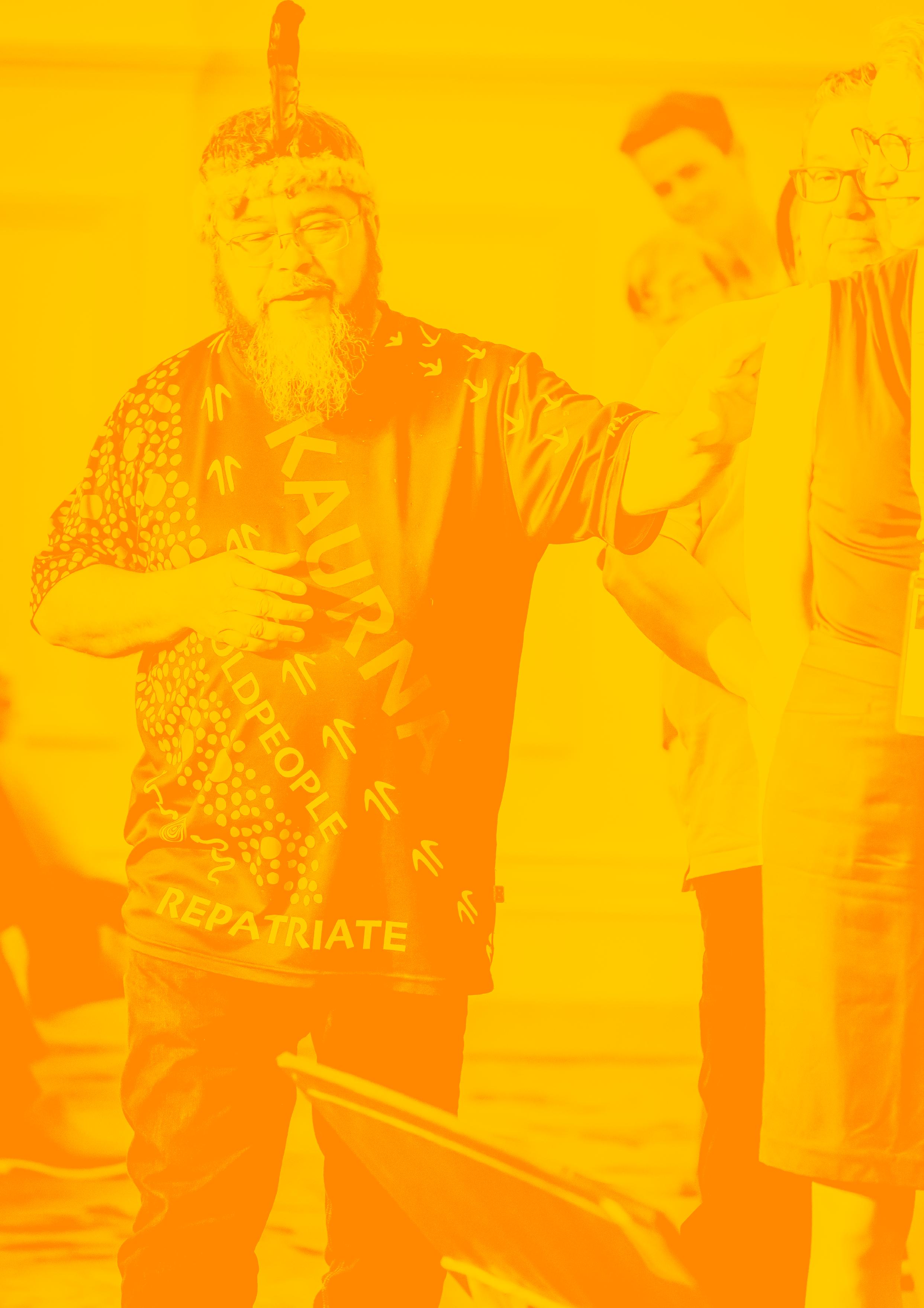
To set and maintain a standard of excellence in the practice of sport and exercise medicine
The ACSEP is the pre-eminent professional body representing Sport and Exercise Physicians and Sport and Exercise Medicine in Australasia. The ACSEP is dedicated to providing a robust training experience for its Registrars whilst advancing the skills of its members through evidence based practice.
Sport and Exercise Physicians are committed to excellence in the practice of medicine as it applies to all aspects of physical activity. Safe and effective sporting performance at all levels is a major focus. Alongside this is the increasing recognition of the importance of exercise in the prevention and treatment of common and often serious medical conditions, such as arthritis, heart disease, diabetes and many cancers.
The goal of all Sport and Exercise Physicians should be to facilitate all members of the community to enjoy exercise safely to 100 years and beyond, knowing that physical activity provides them the ‘best buy’ to prevent chronic disease.
OUR MISSION
To provide and promote excellence in training and continuing professional development of Sport and Exercise Physicians in Australia and New Zealand.
OUR VISION
To provide world’s best practice with regard to training, standards and research in the specialty of Sport and Exercise Medicine.
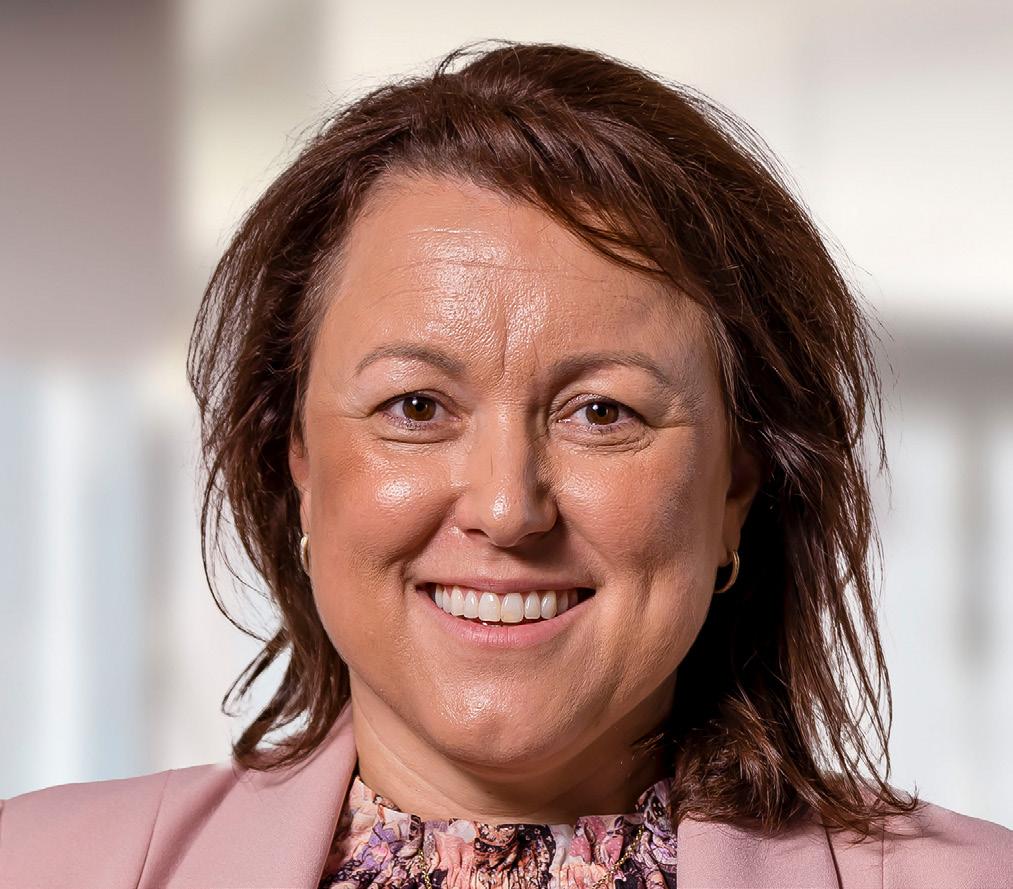
involvement throughout the process. We look forward to measuring our success in achieving the strategy through welldefined key performance indicators during 2023 and beyond.
What an exciting and busy start 2022 has been in my role as Chair of the College. I have enjoyed getting to know many people including board members, committee members, fellows and registrars.
It has been wonderful for the college to be able to conduct our conference in person this year and for people to be able to get back together again after a tough couple of years. It is really evident that people are genuinely excited about this, and it is important for the college to be able to run events and training face-to-face.
During 2022, the board, together with the input of committees and committee chairs spent much time developing the new three-year strategic plan. The 20222025 strategic plan commenced on 1 July 2022 and was developed to steer and shape the college over the next three years, with a focus on five key strategic priorities: Member Experience and Engagement; Education and Training Excellence; Advocacy and Awareness; Stakeholders, Partnerships and Alliances and Organisational Resilience. It has been a significant effort resulting in a well-developed strategy to take us forward. Thank you to everyone for their
This year I have been focussed on making improvements to ensure that the governance of the College is best practice to assist us in the delivery of high-quality services to our members. This will continue into next year as we continue to look at how we can improve our processes and how we operate to maximise our effectiveness. Our committees form a key part of our governance structures, and I am grateful to all of those who have contributed their time to the board and committees during the year.
I would like to thank my fellow board members and staff for their assistance and support as I transitioned into my role.
forward
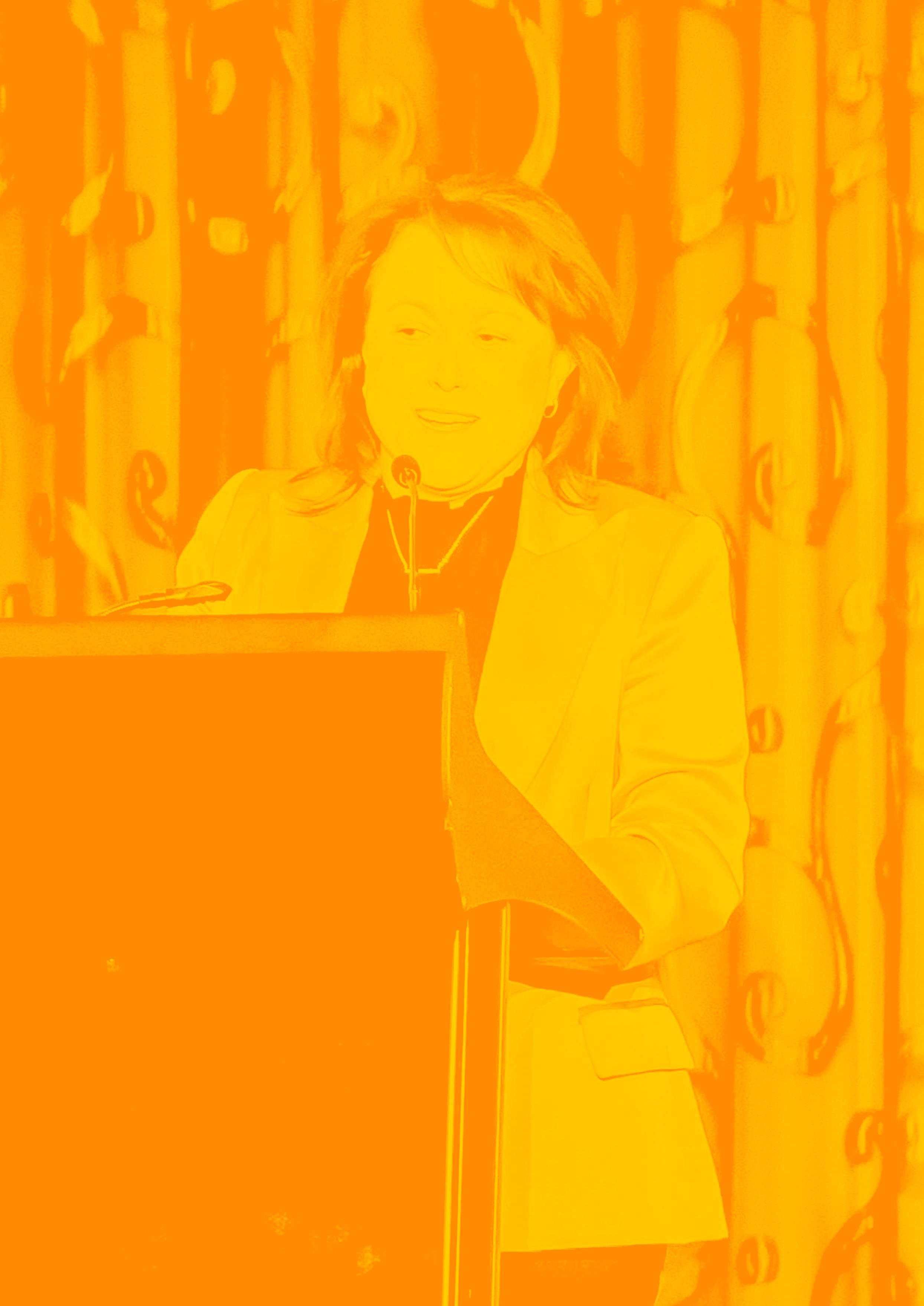
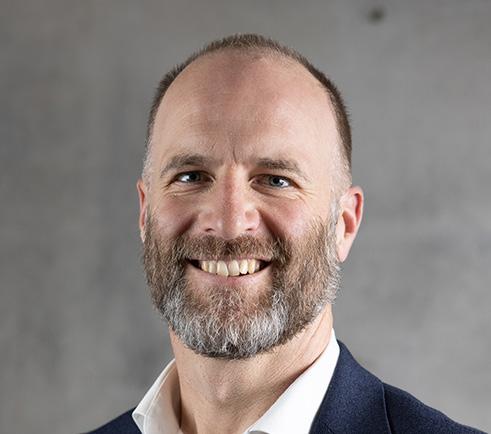
While there has been a lot to celebrate in 2022, the year has again brought significant challenges.
I recall opening my last ‘year in review’ with a similar sentiment! As you will all be aware, the tail of the pandemic has been long and this has had a big impact on the ACSEP, limiting our work and ongoing advocacy for Sport and Exercise Medicine. This has also unfortunately had an impact on the National Office. We have had difficulty sourcing and retaining staff and at the time of writing the College is effectively ‘homeless’ as we look for a new office space. The good news is that there does seem to be an end (of sorts) in sight. We have resumed most of our regular meetings with other Colleges and groups as well as hosting an excellent Annual Scientific Meeting, MOST courses and a range of other face-toface events. As our recent conference has highlighted, COVID is not going away and it will be interesting to see how it does, or doesn’t, impact our work in 2023.
One of our key tasks in 2022 was to review our strategic plan and to create a clear strategy for the next three years. The new strategic plan was developed
with input from all of our committees and committee chairs, the board and with help from an external facilitator. I am hoping that most of you will have been able to review this document and will have had time to reflect and to consider how this will impact your working life. The new plan has a much narrower scope than the previous edition. We are a small College, and we need to ensure that we have an achievable body of work. We believe that there is a particular need to engage with other SEM groups and to be able to demonstrate that the ACSEP is a leader in SEM, to be able to deliver SEM at a national level and to demonstrate that our service has scale. To achieve these latter goals, we will need to engage with other external groups including nonACSEP doctors, allied health providers and sporting bodies. Throughout the term of the new strategic plan, we will continue to focus on our key functions including providing high quality SEM education, supporting our ACSEP fellows and registrars and ensuring that the College remains sustainable and relevant. There are also initiatives to improve the representation of women and indigenous groups within the College and to foster and support diversity. Two key strategic objectives are to attempt to secure better rebates for fellows and funding for registrar training (on both sides of the Tasman). These will be the primary areas of focus for my final twelve months in the President role. There is a clear way forward with regard to the MBS rebate issue in Australia through a newly formed MBS Review committee. Unfortunately, the path to better registrar funding, on both sides of the Tasman, is less clear. One short-term solution that we will explore in 2023 is the possibility of securing more STP training positions for the next intake of first year registrars in Australia. We will continue to seek
better funding for our New Zealandbased fellows via ongoing meetings and advocacy with the major funders in New Zealand, ACC and Southern Cross (New Zealand’s largest private health insurer). In 2023, we are hoping to see improvements to the terms of the Clinical Services Contract, access to other ACC contracts as well as the possibility of engaging in co-design of new SEMrelated projects.
In 2023, we are going to try to better demonstrate the work and impact of the ACSEP. We have been able to secure some funding to engage external consultants to assist with this work. One area where we may be able to get some traction relates to concussion and mTBI in sport. This is an increasingly popular and contentious topic in mainstream media that is not clearly owned by other medical colleges or groups. We believe that the ACSEP can be the leader in this area and that we may be able develop some profile amongst both the sporting public, other medical groups and with government. With this in mind, we have recently started work on a submission for an Australian parliamentary inquiry into concussion in sport.
There have been some changes to our Board and governance structures in 2022. As I am sure you will all be aware, David Brennan retired from the Chair role in early 2022. I would like to thank David for his service. I would also like to take this opportunity to welcome our new Chair, Dr Saranne Cooke, whom many of you may have met in Adelaide. After a number of years of service, Robin Buckham has recently resigned from the Board. I would also like to thank Robin for her service as an independent director and welcome our new director Mr Phil Calvert. Many of you may have met Phil through his role as physiotherapist in South Australia and his recent position as President of the Australian Physiotherapy Association. Cristina Wolters has joined
us as the chair of our Finance, Audit and Risk Management Committee (FARM). For those of you who are not familiar with this committee, it forms an important part of our governance structure by monitoring and managing our financial and compliance risks. Finally, Dr Lou Tulloh’s term on the ACSEP Board has come to an end. Lou has been a tireless advocate for the ACSEP and I would like to thank her again for her ongoing work, support and advocacy. Lou has been replaced on the board by Dr Pip Inge.
It has been great to see SEM Physicians from the ACSEP representing Australia, New Zealand and a range of other nations in elite sporting competitions during 2022. These have included the Winter Olympics in Beijing as well as the recently held FIFA World Cup. While we are clearly looking for ways to expand into exercise medicine and the treatment of non-communicable diseases, elite sport will remain a key part of both SEM training and work. I am personally looking forward to the FIFA Women’s World Cup in 2023 which will be held in both Australia and New Zealand. This major international event is certain to feature several ACSEP fellows and registrars in a range of different leadership roles including serving as team physicians, providing event coverage and performing organisational and governance roles.
Finally, at a personal level it was fantastic to see you all in Adelaide at our recent Annual Scientific Meeting. After so many online meetings, lockdowns and difficulty travelling it was great to reconnect. I look forward to seeing you all in Wellington in December 2023 for next year’s event. I would like to thank you all for your support in 2022, especially those of you who have contributed to the ACSEP Board and committees. I would also like to thank our National Office staff and our CEO Kate Simkovic for her hard work and entertaining Friday afternoon banter.
There’s no doubt that 2022 brought its challenges, but it also featured many milestones to celebrate – made possible through a collective dedication to Sport and Exercise Medicine both in Australasia and abroad. The year commenced with travel restrictions and complications still in place and the national office staff continuing with the challenge of homebased work and once again adjusting planned events – just when we thought in person plans could go ahead.
Through the initial restrictions, the ACSEP was able to undertake yet another virtual AGM where we farewelled our long standing and committed Chair, Mr David Brennan, and welcomed new ACSEP Board Chair, Dr Saranne Cooke. Saranne has steadily led a number of governance changes, provided Board leadership through a fresh lens and successfully navigated the ACSEP Board through the new 3-year ACSEP strategy development.
As the ACSEP couldn’t rely on the optimistic hope of ‘business as usual’ returning any time soon, the focus turned to upskilling and delivering Sport and Exercise Medicine in a digital world. This strategy was already entrenched
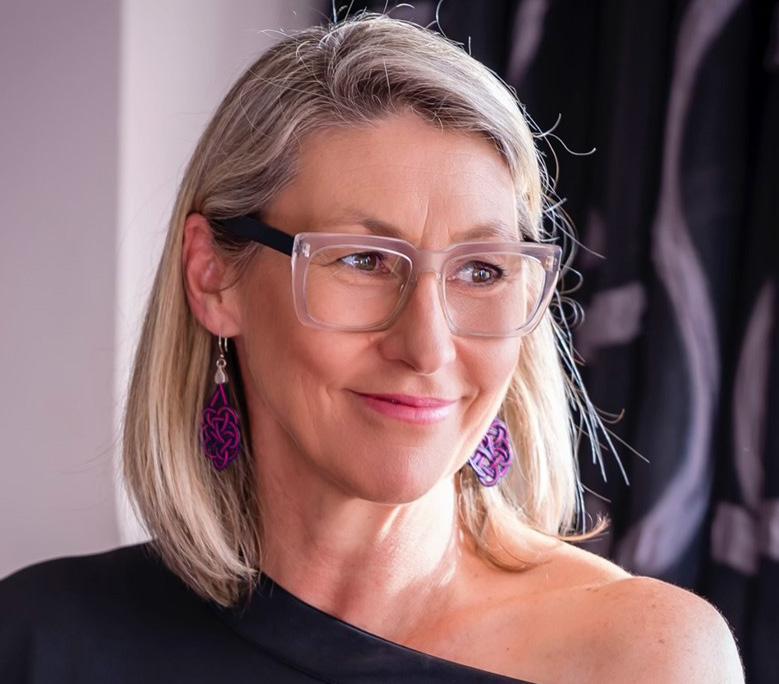
due to the well establish SEM Academy platform, however so much had changed throughout the past 2 years of COVID and the organization needed to obtain newly developed software to support the decentralized work and business environment that was now well and truly the future.
Partnerships were also still a major focus for the ACSEP, and this included collaboration with members as well as external stakeholders. Authentic collaboration is hard, but necessary for good governance and long-lasting change. It takes time and often the results of these collaborative initiatives are not realized immediately. Committees worked hard towards delivering on their terms of reference for the ACSEP whilst the Executive looked to further develop sustainable and aligned relationships that would help grow the ACSEP both domestically and internationally. The success of this work is evident through the engagement with the Council of Presidents of Medical Colleges (Australia) and the Council of Medical Colleges (New Zealand). The ongoing establishment of advocacy allies to assist with funding model change for both Fellows and Registrars continues to be a major focus within an ever-changing political environment. The influential work of Moving Medicine across the health sector and the ACSEP leadership through the delivery of (eventual) face to face MOST courses continued to progress. This resulted in some muchneeded grant application success with some exciting initiatives to be implemented in 2023 across a number of broad areas, including indigenous resource development and cultural safety, various rural strengthening projects and registrar examination
support strategies.
Most importantly for the ACSEP and members alike, the growing skills shortage started to impact in a very real way. This being at the coal face of the health industry as well as the recruitment of staff to deliver on National Office operations. Like many other Not for Profit organisations, the ACSEP looked to outsource and seek expertise in areas of shortage. If nothing else, it has become clear that CEOs and Boards worldwide need to focus on how to combat the skills shortage and cannot take this situation lightly. The ACSEP has similarly needed to adopt this approach through strengthening our employee value proposition (EVP), with a focus on role based, career path upskilling and training, increasing flexibility and wellbeing within the workplace, outsourcing non-core activities to external providers, and ultimately – being nimble and open to change. The world is changing faster than ever, bringing unimagined new challenges. Issues that can’t be solved
using old formulas require new thinking and change is not only essential but inevitable.
Finally, it is the impact that ACSEP has that is of primary importance. Thank you to the whole ACSEP community, staff and members, for the impactful contributions you have made throughout 2022. Our meaningful role within the healthcare landscape, our influence on positive patient outcomes, our global leadership in Sport and Exercise Medicine, our ability to adapt to change; striving for inclusiveness, equity and culturally safe practices and strengthening the positive impact that SEM can have on the Australasian and indeed the global community. The ACSEP is young, has resource challenges and is a small specialty. We have a lot to learn and make mistakes, however there is a lot that the ACSEP and its members does extremely well. For our impact to grow, we as a specialty need to grow and I look forward to 2023 bringing achievements and learnings that all members can be proud of.
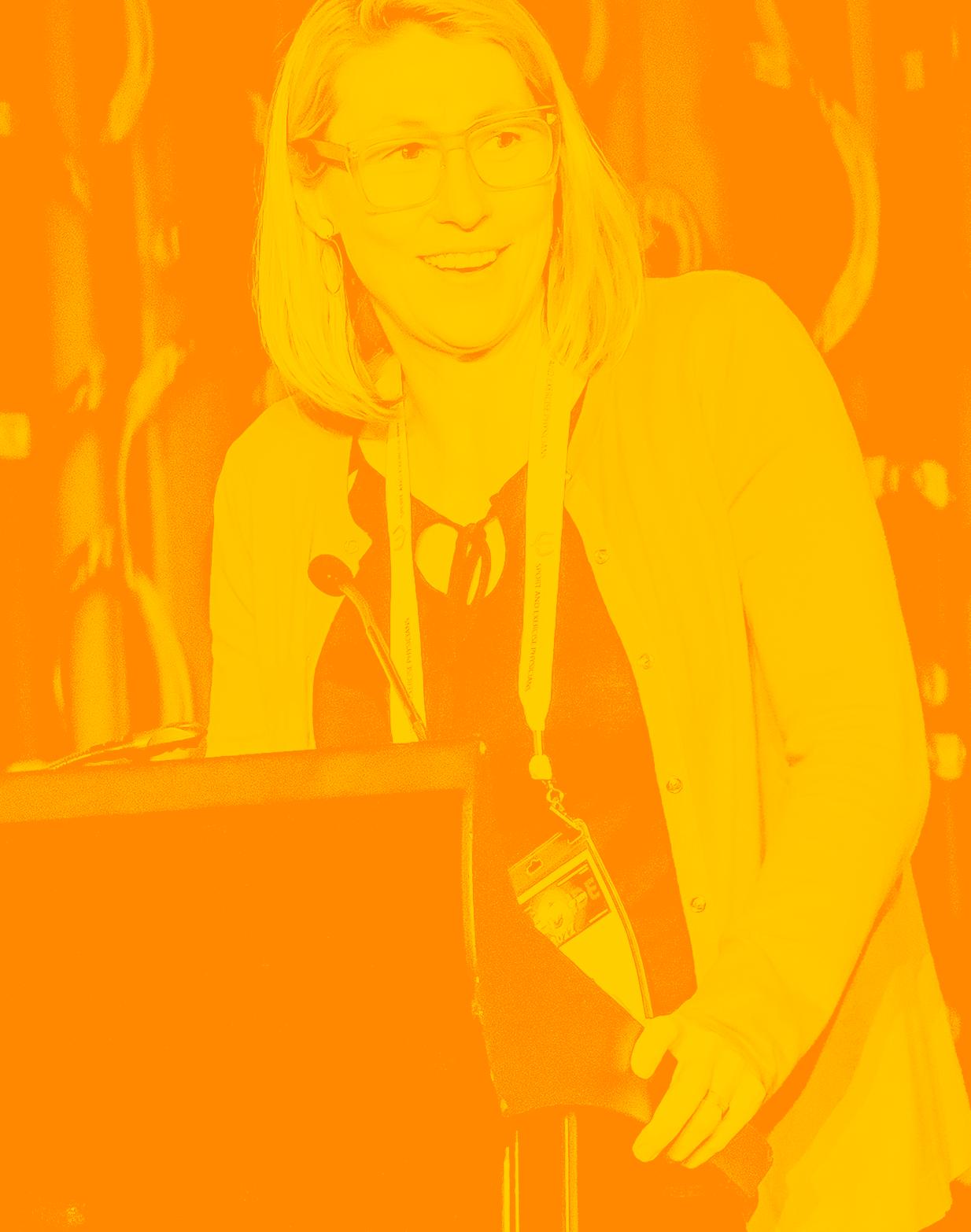
The world is changing faster than ever, bringing unimagined new challenges.”
Kate Simkovic CEO
A highlight in my role this year was to be alongside experts in cultural safety reviewing some of the challenges that colleges face through unpacking positive and negative experiences navigating cultural safety in health. It is somewhat ironic for me that in a year when I have spent a lot more time discussing these issues, I have spent less time engaged with the parts of my life that give me the direct connection to them. This has been my experience since medical school.
Firstly, congratulations to the new fellows for 2022:
Hamish Reid, Caroline Stuart, Stephen Kara and Alyse Cameron. Well done to you all!
My family and I are currently on a long walk over the South Island following “Te Araroa”, the length of NZ trail that will ultimately lead us to my Ūkaipō, which is Invercargill/Bluff. I am taking a moment out during this trip to reflect on the year as I have seen it.
We have seen the health system feeling its way through the transitions of structural change, and the seemingly irrepressible COVID-19 continues to exert its effect on our practices and systems lest we should forget it. And, we are tentatively toeing the waters of travel any face-to-face meeting again.
It is also encouraging to see some of our members getting involved in projects with the ACC including contribution to guidelines and clinical pathways, HPSNZ and exercise medicine. It seems that gradually the areas of expertise and skillsets of our fellows is better seen and appreciated by those within the health and exercise sectors. Kate Simkovic, Mark Fulcher and I have had appreciated some face-to-face communication with ACC, and this year has felt like perhaps there is some progress in that regard. Some feedback has been that greater communication is wanted to update fellows on the discussions with ACC and the CMC. This has been noted and set as a priority for 2023.
As I head into the southern part of the land (my relations say there’s nothing healthier than heading south), I look to recover from a busy, complicated and rewarding year. I hope that you can all find a good direction for the coming season. I look forward to reconnecting in the New Year.
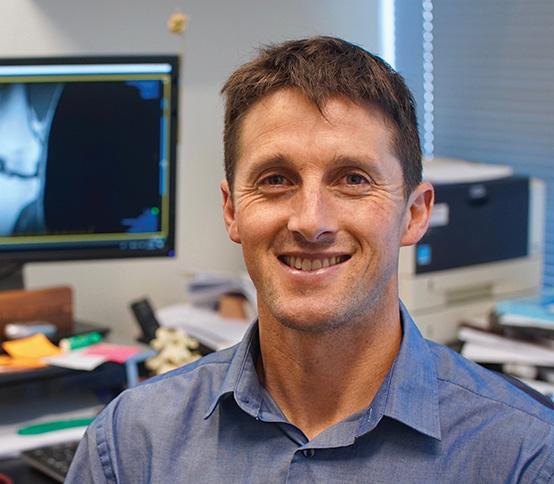
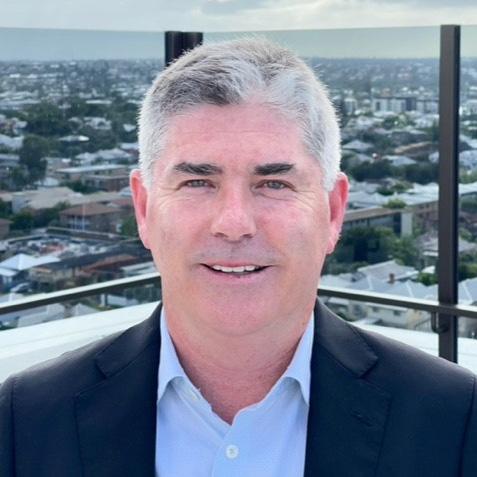
The Board are responsible for the organisation’s operations and strategy. They ensure that the various functions of the College have what they need to perform by upholding best-practice governance. Providing direction that enables the delivery of quality training and best care for members and their patients is core to the Board remit.
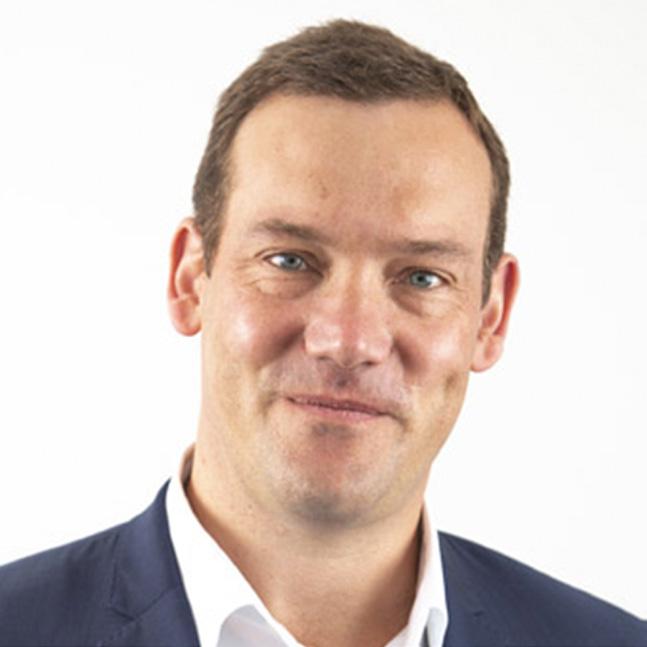
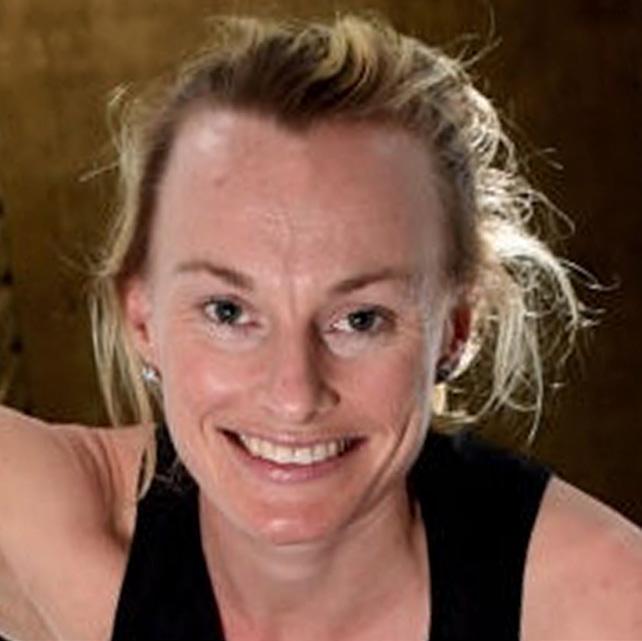
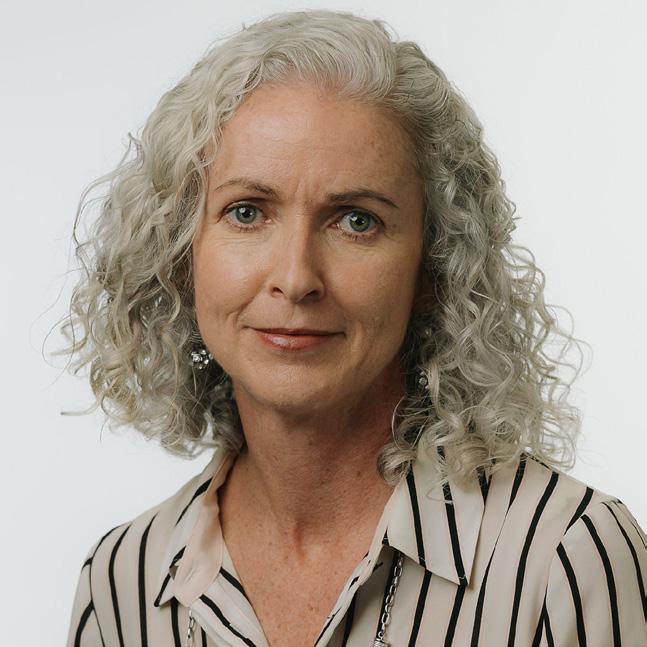
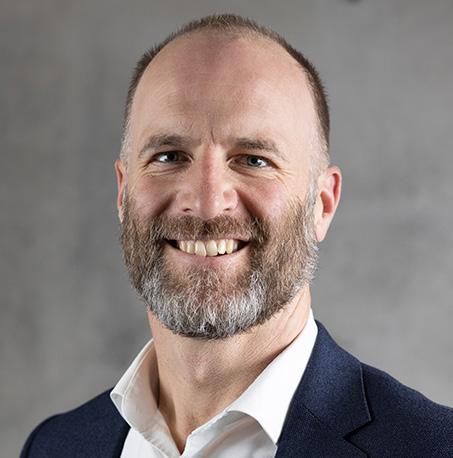
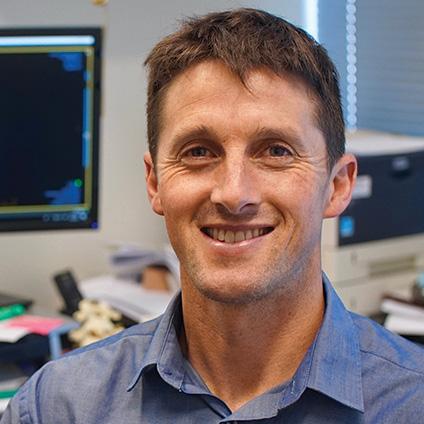
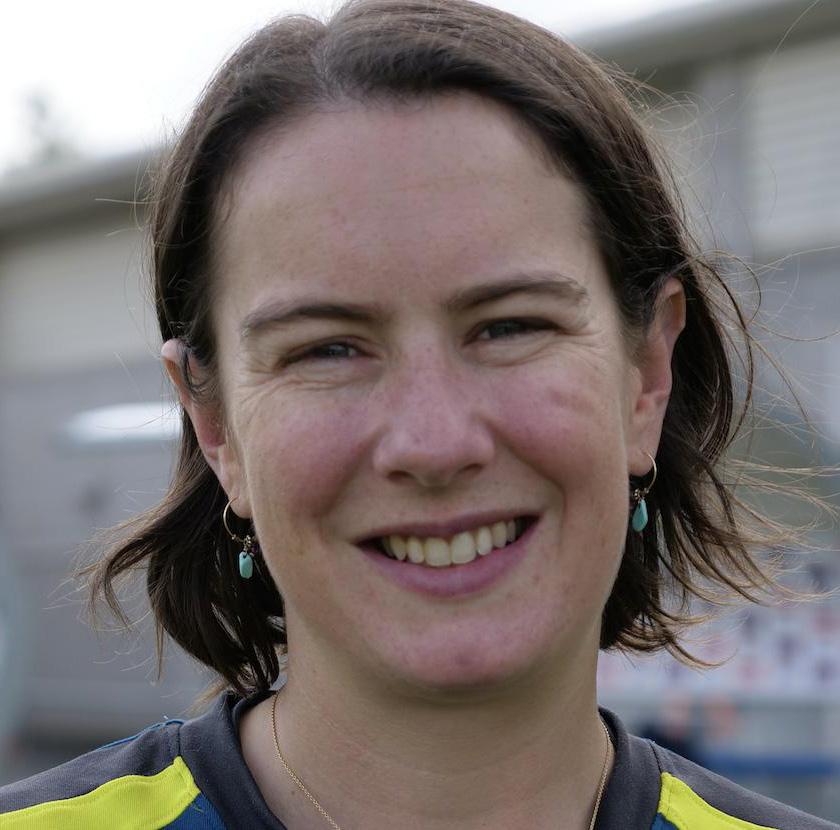
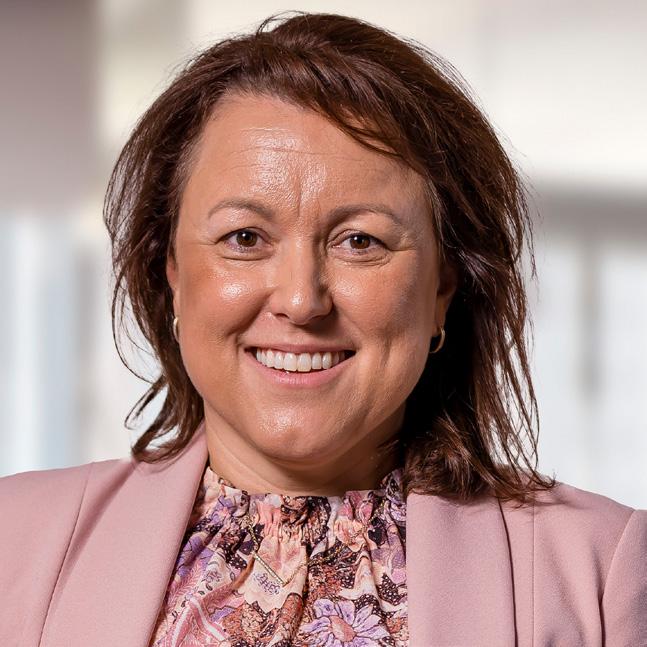 Dr Saranne Cooke Chair
Dr Pip Inge Director
Dr Nat Anglem Director
Dr Mark Fulcher President
Dr Linda Swan Director
Dr Alice McNamara Registrar Representative
Dr Corey Cunningham President Elect
Dr Saranne Cooke Chair
Dr Pip Inge Director
Dr Nat Anglem Director
Dr Mark Fulcher President
Dr Linda Swan Director
Dr Alice McNamara Registrar Representative
Dr Corey Cunningham President Elect
The College is governed by the ACSEP Board of Directors, led by the Chair and President. As a small and growing College, the ACSEP membership provide invaluable and continued support to the growth and maturation of the College. Under the Board, key committees are chaired by
ACSEP Fellows, providing the framework for continued excellence for ACSEP as the leading Australasian authority in Sport and Exercise Medicine. Alongside the ACSEP committees many working groups provide further support within several key areas:
OFFICE STAFF Committees)
College Committees support the Board and are composed of members and chaired by Fellows. Committees connect the College to on-the-ground experts that offer knowledge and experience in reviewing and making recommendations on key functions of the College and topical issues in sport and health.
The National Office staff ensure that the operational needs of the College are met. Staff work together with members to provide specific business expertise such as finance, administration, project manag ement, training and accreditation, research and marketing.
EDUCATION RESEARCH
REGISTRAR RESEARCH POSITION ATEMENT ORKING GROUP
MASTERS COURSES
RESOURCES
INDIGENOUS HEALTH
MENTAL HEALTH & WELLBEING
WOMEN IN SEM
CONFERENCE
CURRICULUM WORKING GROUP
WORKING GROUPS
EXERCISE
ULTRASOUND
UNDERGRADUATE SEM
CHOOSING WISELY
Our strategic plan articulates the way we organise our work. It shapes the future planning of the College and guides the organisation in working towards our vision and mission.
The four strategic priorities are:
1 2 3 4
Delivering a quality training program that is world class, evidence based and has the needs of trainees and supervisors at the core.
Creating spaces for members to engage with the College, their peers and educational opportunities throughout their career.
Ensuring that our infrastructure enables financial stability, staff retention and robust governance. Promoting and modelling a culture of respect within our organisation and specialty.
Investing in strategic relationships to promote and advocate for the specialty in our industry, local and global community and government.
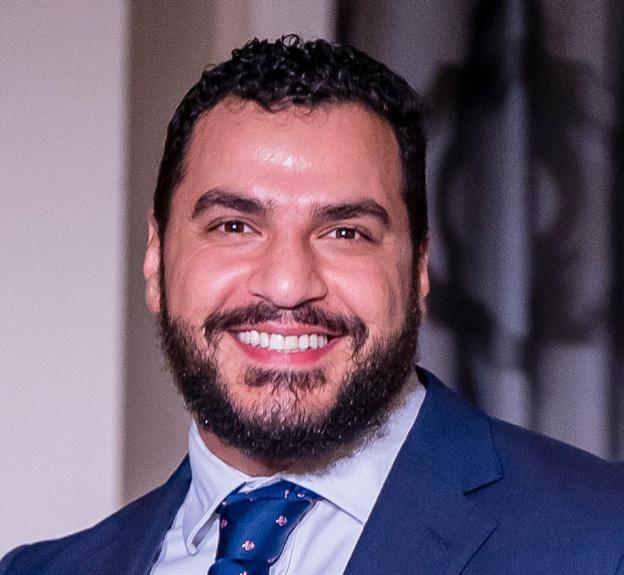
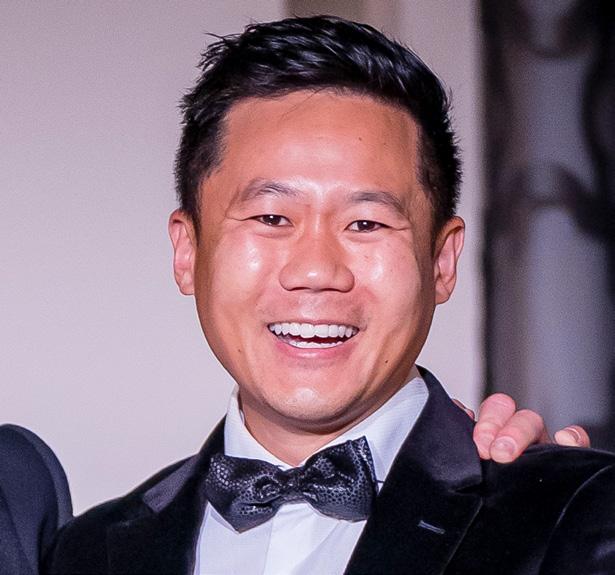
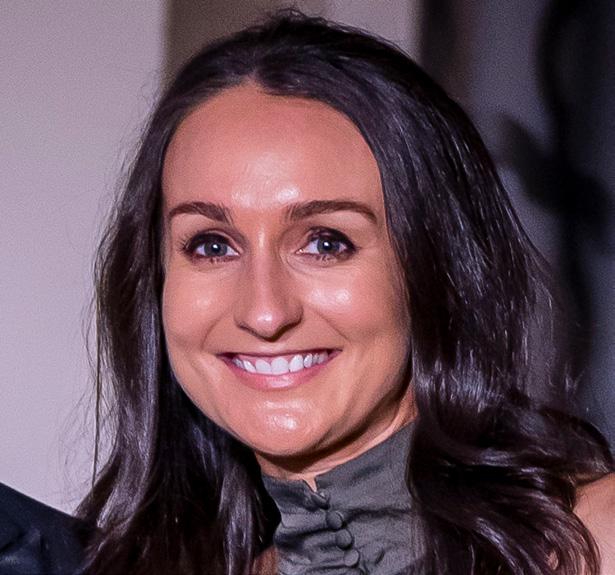
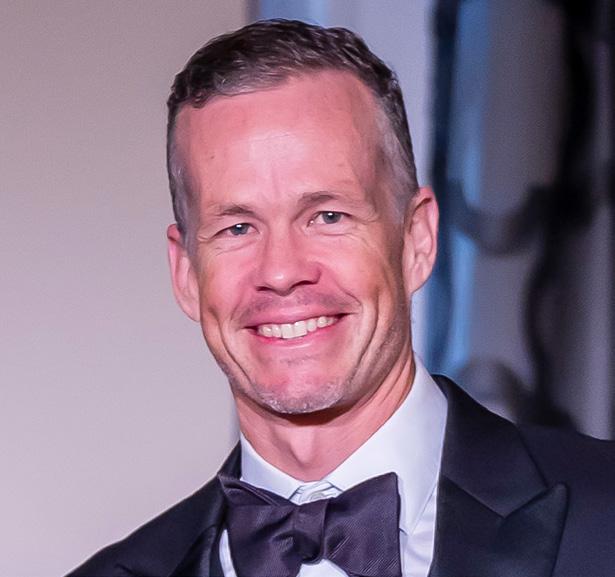
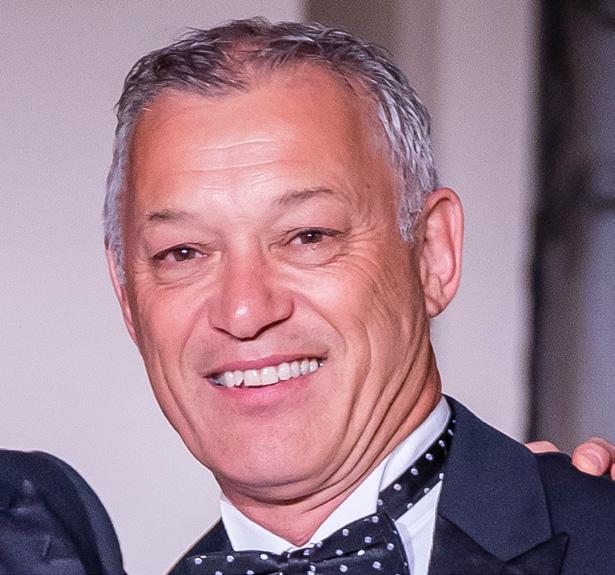
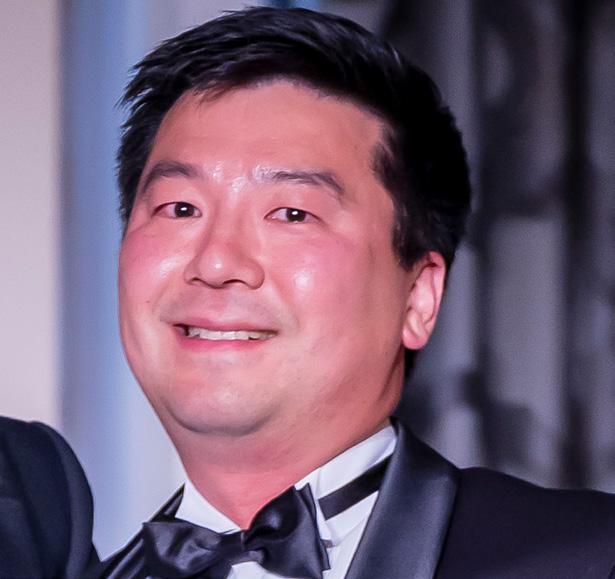
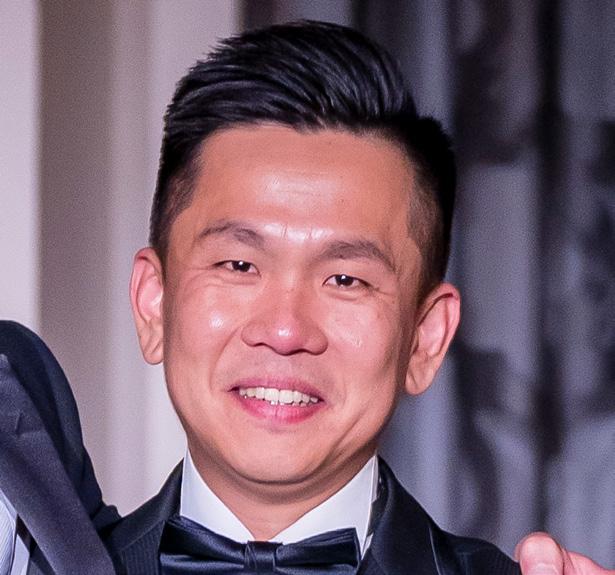
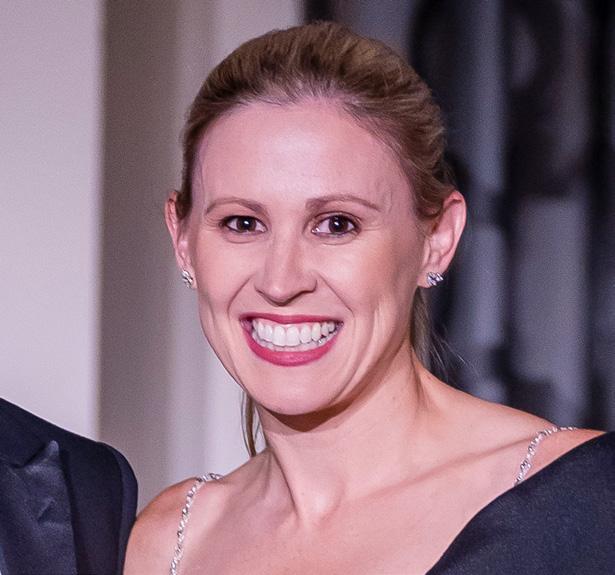
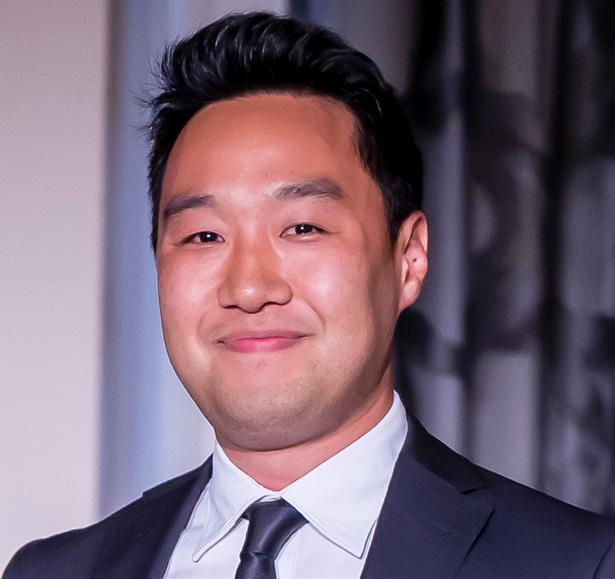
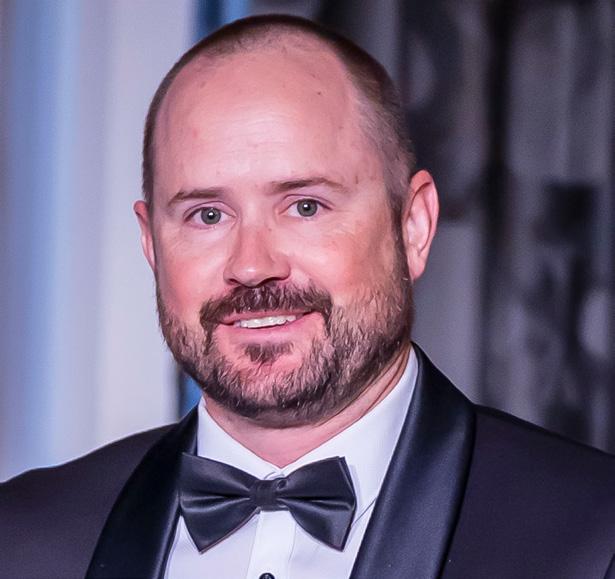
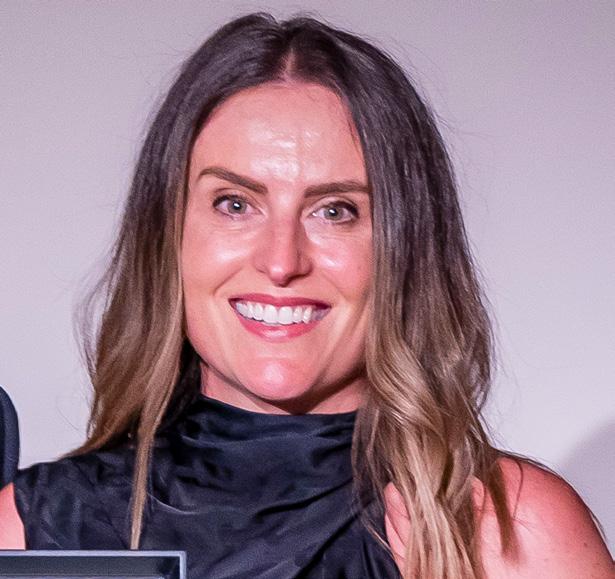
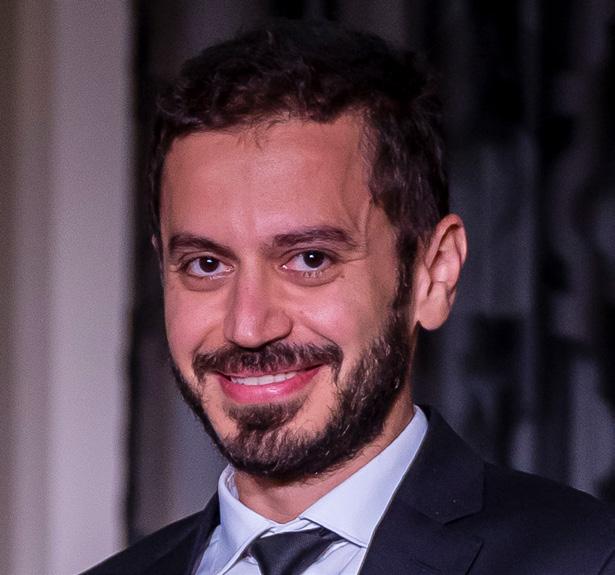
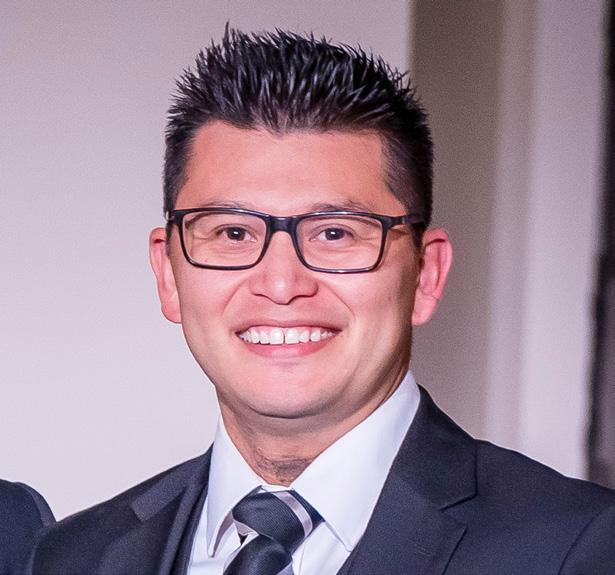
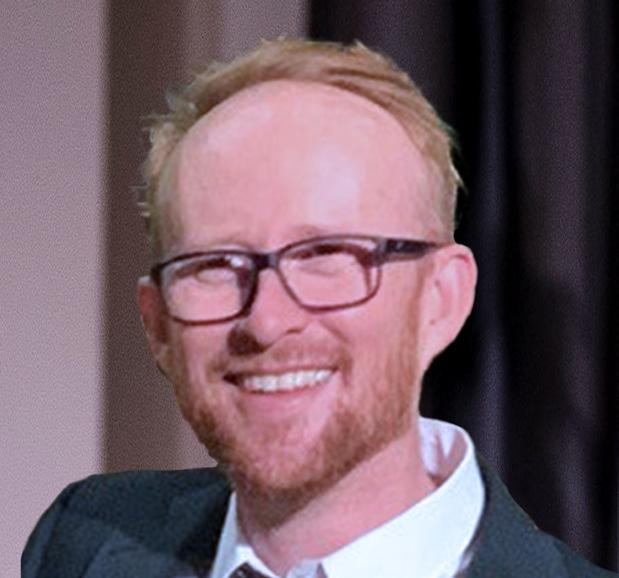
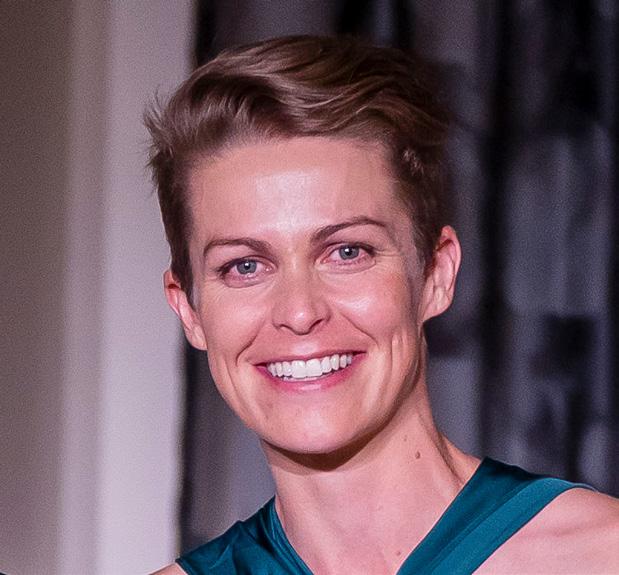
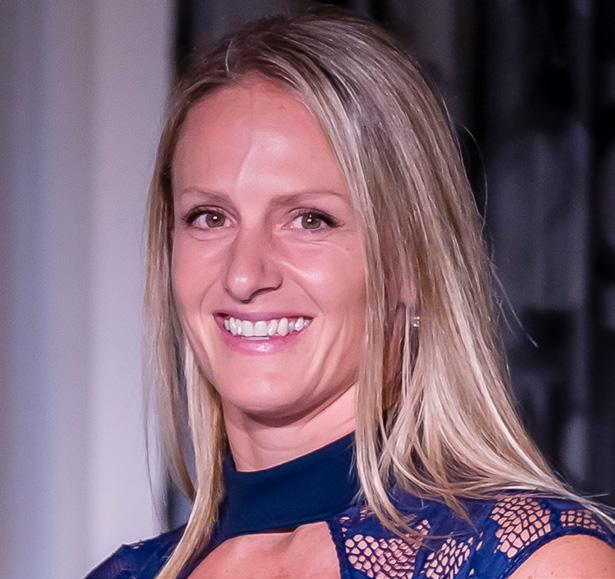
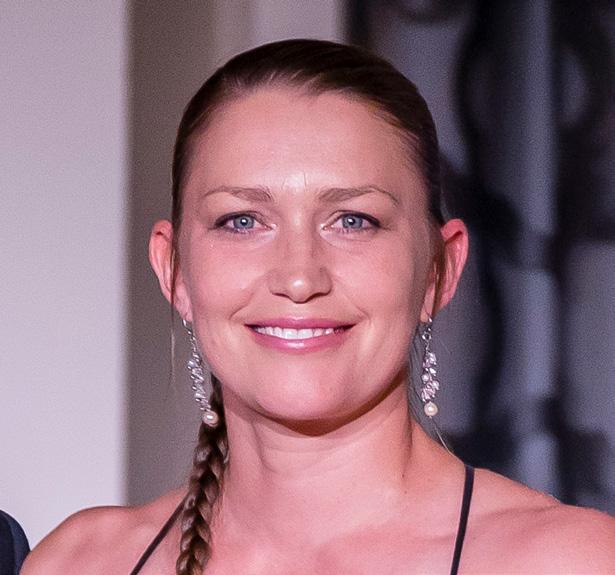
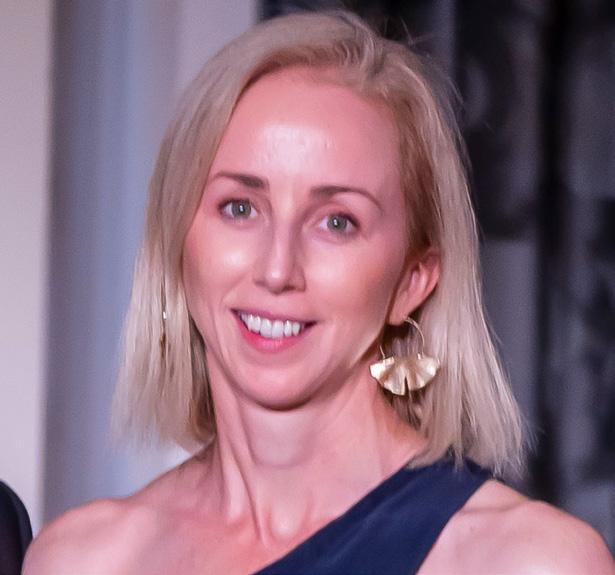

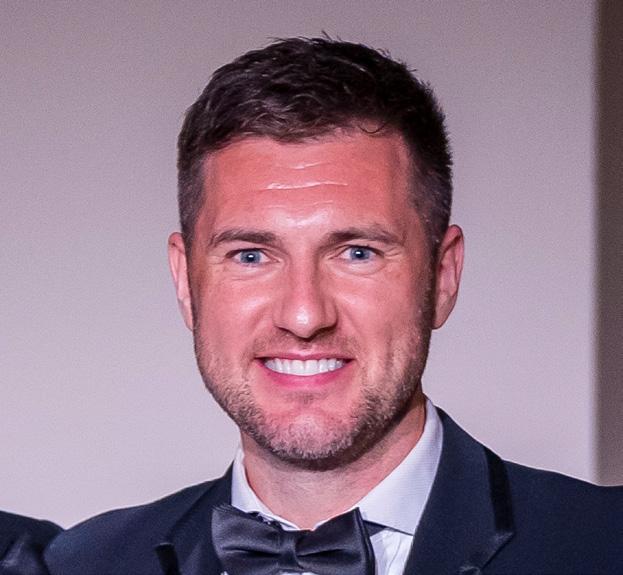

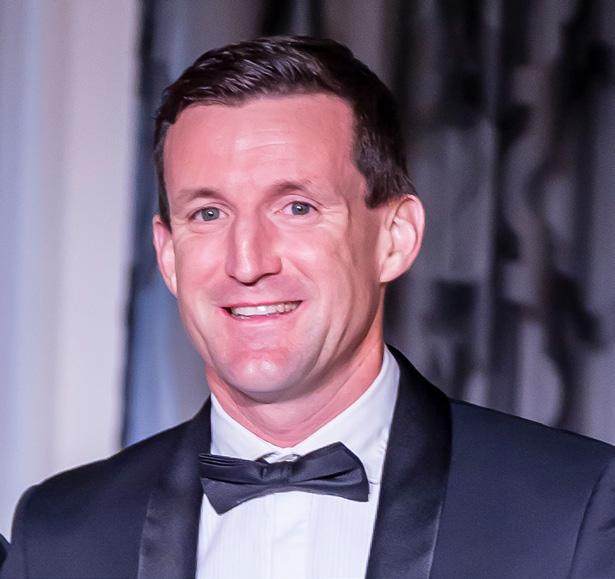
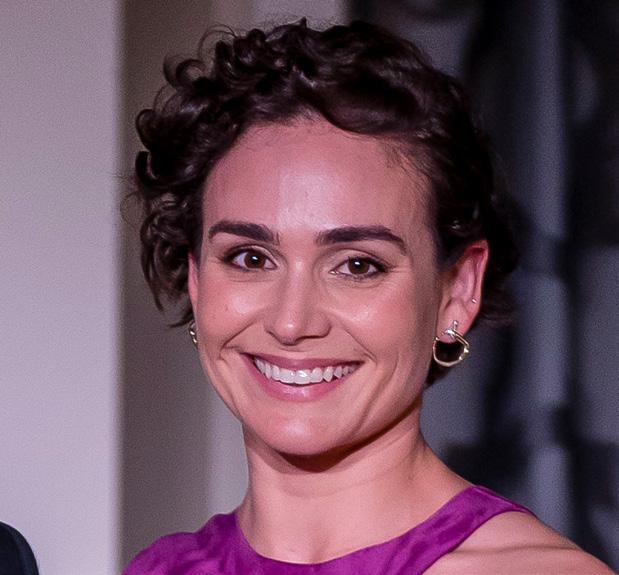
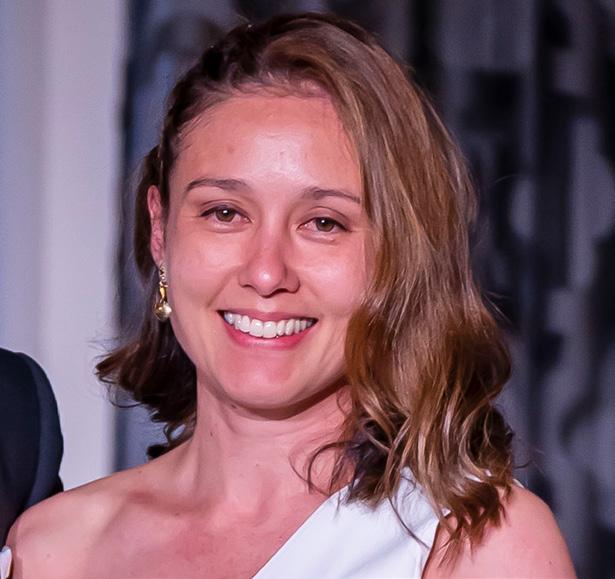 David Long
Kevyn Mejia-Hernandez
Jane Taylor
Kimberley Wells
Samantha Pomroy
Caroline Stuart
Liam West
Colm McCarthy
Hamish Reid
Thomas Longworth
Nicole Sly
David Long
Kevyn Mejia-Hernandez
Jane Taylor
Kimberley Wells
Samantha Pomroy
Caroline Stuart
Liam West
Colm McCarthy
Hamish Reid
Thomas Longworth
Nicole Sly
Education Committee
Chair: Dan Exeter
Committee Members: Bruce Hamilton, Craig Panther, Sharron Flahive, Corey Cunningham, Diana Robinson, Mark Fulcher, Krishant Naidu, Diana Quin
Training Committee
Chair: Sharron Flahive
Committee Members: Paul Annett, Sharon Stay, Chris Hanna, John Molloy, Tracy Peters, Tom Hill, David Bolzonello, Anik Shawdon, Rachel Taylor, Viran De Silva, Alice McNamara
Research Committee
Chair: Bruce Hamilton
Committee Members: Kieran Fallon, John Orchard, Justin Paoloni, Bruce Hamilton, Mark Fulcher, Jeni Saunders, Simon Locke, Carmel Goodman, Brandi Cole
Women In SEM
Co-Chairs: Pip Inge and Rachel Harris
Committee Members: Louise Tulloh, Nicole Sly, Brandi Cole, Deborah Robinson, Sharron Flahive, Eloise Matthews, Kate Simkovic, Masiiwa Njawaya
Examination & Assessment Committee
Chair: Corey Cunningham
Committee Members: Judith May, Matt Hislop, Paul Blackman, Leesa Huguenin, Tracy Peters, Simon Kim
Continuing Professional Development Committee
Chair: Craig Panther
Committee Members: Krishant Naidu, Nat Anglem, Matthew Hislop, Katherine Rae, Bassam Moses, Yaso Kathiravel
Chair: Krishant Naidu
Committee Members: Adam Castricum, Hamish Osborne, Leigh Golding, Nat Anglem, Nathan Luies, Sharron Flahive, Viran De Silva, Katherine Rae, Andrew McDonald, Gary Couanis
The Education Committee is responsible for developing the education strategy and regulates and approves all education activities delegated by the Board.
2022 saw the Education Committee (EdCom) continue its work developing the internal education strategy for the College. Again, the pandemic created some challenges but with EdCom now being a more evolved committee, it was easier to continue the work than in other years.
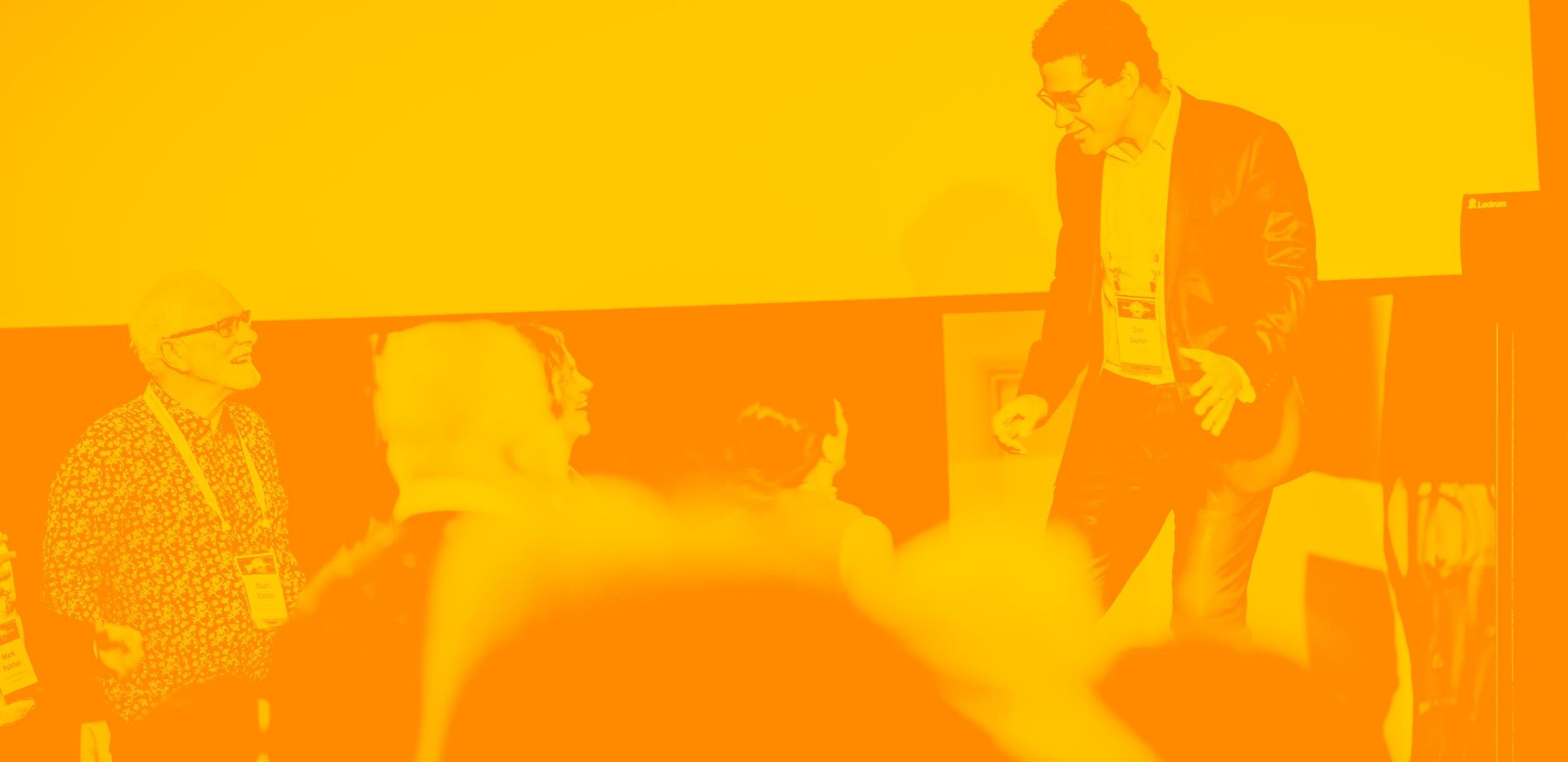
This year, it was clear that one of the key items for review was succession planning for all committees and working groups. To that end, a succession planning framework that better highlights and acknowledges the strategic work of all of the committees and incentivises members to join committees, was developed by EdCom and approved by the Board. The College cannot operate effectively without the committees and we hope this framework will give committee work the credence it is due. Work continued on the SEM Roadmap, highlighting the educational offerings of the College outside of registrar training,
and it is clear that while there are great resources for our fellows, we have some gaps when it comes to providing resources for key stages of the SEM career span. We will look to plug these with stage-appropriate material in the coming years.
I wish to thank all those who give their time to serve on College committees and working groups. Additionally, I would like to thank the Chairs for their extra work, not only in leading their committees but for the extra time they devote to EdCom. It was primarily another year of Zoom meetings, with our face-to-face meeting at the Annual Scientific Conference only serving as a reminder of how much better it is to meet in person.
Best wishes to you all.
The EAC oversee the preparation, conduct, marking and determination of competence standards for the ACSEP Entrance Exam (Part 1) and Fellowship Exam(Part 2). The Committee also look after the assessment of overseas trained SEM specialists seeking Fellowship.
The Entrance exam, held twice a year, assesses knowledge in Anatomy, Physiology, Exercise Physiology and Pathology, using a secure online MCQ format which allows candidates to sit the exam in their home city.

38
Candidates sat the Entrance Exam in 2022
55 Pass rate %
Candidates in their 4th year of training or beyond, are eligible to sit the annual Fellowship exam, which comprises of a written component (MCQ and SAQ short answer papers) and a clinical exam featuring a complex long case presentation, Viva and a series of short case examinations.
Despite some COVID challenges during 2022, 19 candidates sat the MCQ / SAQ papers. Our secure online system allowed candidates to complete the exam remotely via a secure weblink on their own device, in their own city, with a local supervisor. 89% of candidates passed the MCQ and 94% passed the SAQ exam.
For the 2022 clinical exam, examiners and 16 candidates were once again back together for an extensive day of Exams. The EAC acknowledges the great collaborative effort from College Fellows and our National Office staff to make the exam process work while providing the opportunity for 14 registrars to complete their training. 88% of candidates passed the Long case, 94% passed the Viva and 100% passed the Short cases clinical exam.
88 Passed Long Case
94 Passed Viva 100 Passed Short Case
89 Passed MCQ
% % % % %
94 Passed SAQ
As we prepare for 2023, we plan to continue to conduct the Entrance MCQ, Fellowship MCQ and Short answer papers using the secure remote portal, but look forward to bringing all candidates and examiners together again into one place for the final Clinical exam.Dr Corey Cunningham Examination and Assessment Committee Chair
The Training Committee coordinates and directs the development and implementation of policy matters relating to the training portfolio.
After two years that could be at best be described as challenging, 2022 saw us welcome back some aspects of normalcy while also remaining vigilant and aware that COVID was still very much part of our lives. The ACSEP Training Program in 2022 very much reflected this duality, by continuing with an online learning approach in several areas, as we also saw a return to opportunities for face-toface engagement.
One of the highlights of this was the first in-person Registrar Conference since 2020, ably hosted on the day by Viran De Silva and Alice McNamara. This brought together registrars from all regions and in many cases was the first opportunity for attendees to meet face to face. Sessions covered areas on research, para-athletes, medical examinations and career pathways before rivalries were renewed on the Glenelg foreshore with some high-quality beach soccer.
Fellowship Examinations also reflected the blended nature of 2022, with the Written Examination being held online and the Clinical Examination returning to the Royal North Shore Hospital in Sydney to be held entirely in-person for the first time since 2019. Well done to all registrars who sat this year, and we congratulate the 14 who successfully completed both Fellowship Examinations. Of this cohort, five were able to immediately apply for Fellowship and joined nearly 30 others who had achieved the same result over the previous two years and who were (finally) welcomed officially as Fellows
at the 2022 Gala Dinner in a longer than usual, but joyous ceremony.
The Interview and Selection Committee elected to continue in an online format for the Selection process, and after introducing a new policy with an active focus on increasing the diversity of the College, we would like to welcome 13 new registrars to the program in 2023.
From a Training Committee perspective, there was a noticeable reduction in special consideration and RPL applications as registrars were able to get back out into the world as we welcomed the return of sports tours, regular home-and-away seasons and events including the Commonwealth Games while hopefully saying goodbye to ‘hubs’ for the last time.
The remote-supervision program was launched and will continue into 2023, extending the reach of SEM into communities and locations that until now hasn’t been possible. 2023 will also see a training post run inside a public hospital for the first time in what is an exciting development and look into the future of SEM.
The online tutorial program continued in 2022, as we welcomed some fantastic speakers from within and outside the College. While this format has been fantastic through 2020-2021, the gradual reopening of 2022 has also revealed some limitations to it and with other areas, the need for a more blended approach moving forward.
Saying goodbye to the year, we look forward to 2023 with optimism, by harnessing new techniques and methods that we have learned after a challenging
period of time, and welcoming back an increase in collaboration, engagement and collegiality.
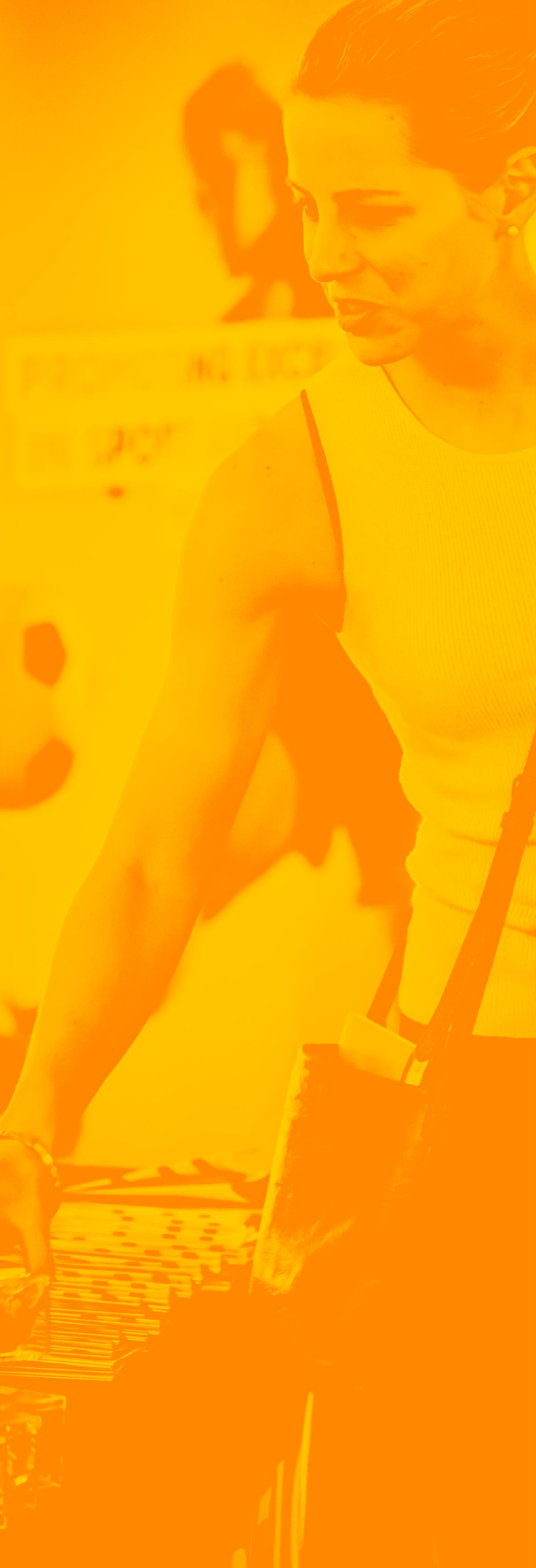 Dr Sharron Flahive Training Committee Chair
Dr Sharron Flahive Training Committee Chair
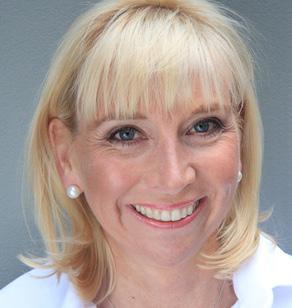
One of the highlights of this was the first in-person Registrar Conference since 2020...”
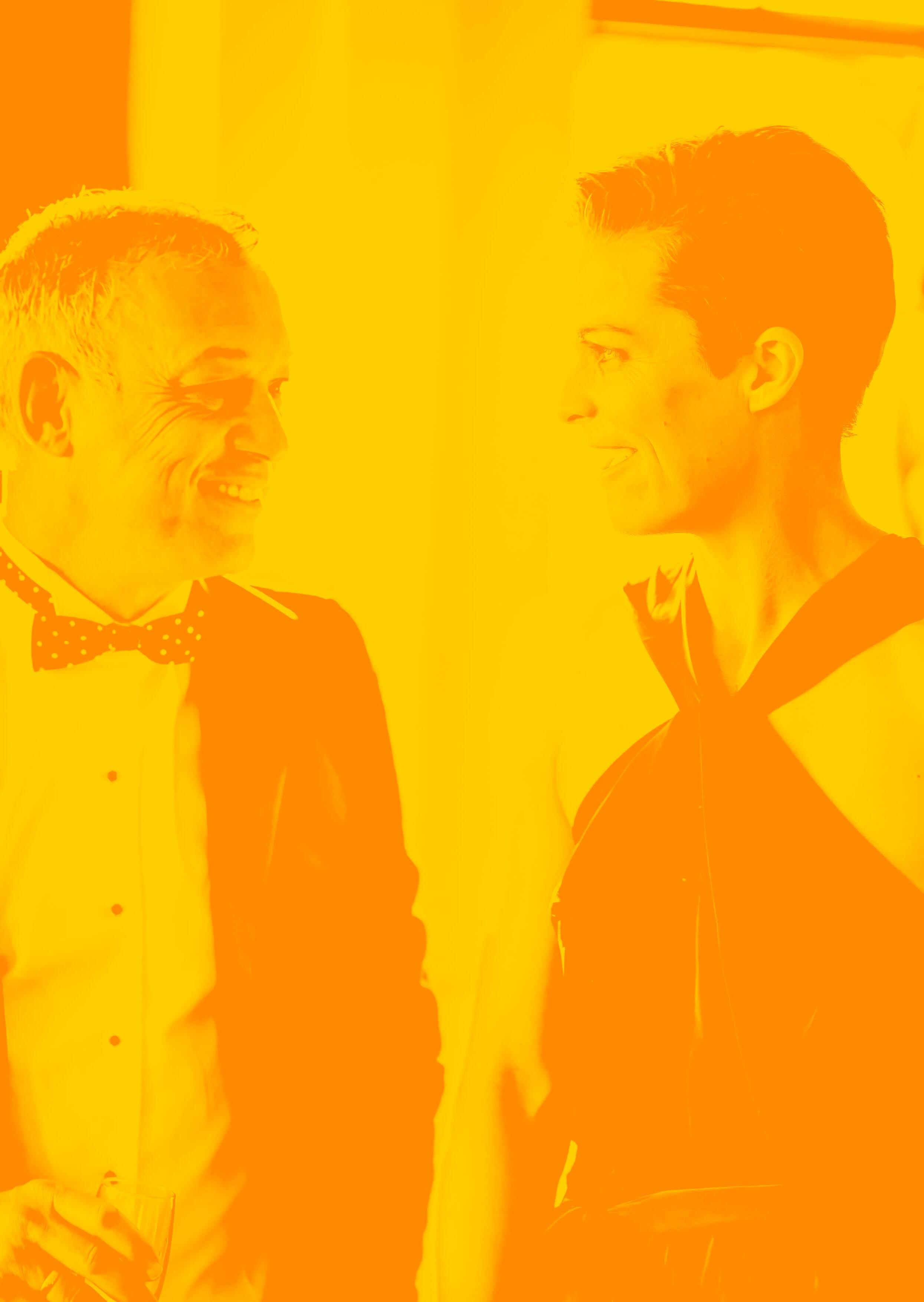
The CPD Committee looks after the development and maintenance of the CPD Program to ensure Fellows maintain and advance their knowledge and skills to ensure the highest standards of patient care.
The end of 2022 marks a time of transition for the CPD program. Not only is it the final year of the previous triennium (stretched to a quadrennium), but it heralds the arrival of an updated program for the next triennium.
2023 sees regulatory changes on both sides of the Tasman, with the CPD Program updated to reflect these. For the most part these are cosmetic rather than substantial, however Fellows will be required to have an Annual Conversation and, from that, formulate a Professional Development Plan. Neither of these tasks are considered onerous; each will facilitate better quality CPD for Fellows.
We will simplify the process for Fellows as much as possible. The CPD Website and portal will be updated to reflect these changes. Templates will be available for easy completion and upload.
As more Fellows ease back on clinical duties as they near retirement, we have clarified CPD requirements for these NonClinical Fellows.
The updated CPD Manual will be available in early 2023.
As always, we welcome feedback from Fellows and any questions regarding what might or might not earn CPD hours.
It was great to be able to meet as a Committee at the ACSEP Conference in Adelaide in early November.
Finally, we are always on the lookout for fellows keen to join the CPD Committee. Please contact Fernanda at National Office if you wish to learn more.
Dr Craig Panther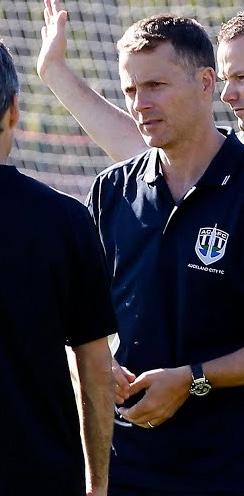
The Research Committee aims to develop the research capability and the research profile of the College. It strives to support College Fellows and Registrars who are interested in or undertaking research projects
An active research environment is an essential component of an effective, safe and sustainable sport and exercise medicine specialty. The ACSEP Research Committee plays a central role in assisting Registrars engage and complete research projects as part of their training, as well as supporting Fellows in their research endeavours and supporting the College in evaluating novel and evolving scientific information.
In 2022, the Research Committee Chair evolved from Dr Jane Fitzpatrick to Dr Bruce Hamilton, with Jane retiring from the Committee after many years of service. I would like to acknowledge the immense contribution Jane has made to the College over that time, and thank her personally for her support during the Chair transition. The Committee continues to have the active involvement of Doctors Mark Fulcher, Carmel Goodman, Justin Paoloni, Brandi Cole, John Orchard, Kieran Fallon and Jeni Saunders. As a highly active Committee involved in facilitating research engagement in the College, we continue to look for new members who would like to contribute in this space.
The Research Committee continues to be impressed with the remarkable research that Registrars and Fellows are able to produce. In 2022 a large number of Registrars and Fellows published original research in high ranking journals – in a broad range of subject areas
within the scope of sports and exercise medicine. The ACSEP Conference in Adelaide showcased much of the excellent research of both Fellows and Registrars and highlighted that the future of the College is in good hands. In recognition of the outstanding and impactful work of Dr John Orchard, he was awarded the 2022 ACSEP Fellows Research Award for his lead authorship of research published in the Journal of Science and Medicine in Sport entitled “Reduced death rates of elite Australian Rules footballers compared to agematched general population”.
In addition to the day-to-day activities of the Research Committee supporting ongoing research, in 2022 the Committee reviewed the current research requirements of Registrar Training. After broad consultation, the Committee recommended a redirection of the approach, with an increased focus on Registrars developing research competencies – while not removing the importance or requirement of completing research projects. During the 2022 ACSEP Scientific Conference in Adelaide, the proposal was approved by the ACSEP Board, and was socialised with both the Fellowship and the Registrars. With this endorsement the Research Committee has been working hard to confirm the details of a new competency-based ‘Research Based Activity’ model for the start of the 2023 Registrar year.
In addition to the Registrar requirements, the Committee is in the process of developing specific research technical support for Registrars, to assist them in developing strong, viable projects and making connections in the world of research. We look forward to having more
details of this important support network in early 2023.
The Research Committee has been fortunate to have the support of Kellie Wells as the ACSEP Research Officer, who took over the role after the departure of Fiona Clay during the year. Kellie has provided immense support to both the Registrars and the Research Committee both in ‘business as usual’ and in development of the new 2023 competency-based Registrar requirements. The Research Committee would like to acknowledge the support of both Fiona and Kellie over the last 12 months.
The Research Committee is looking forward to an active 2023 in which we breathe life into the new Registrar research requirements, and continue to support research activity of the College more broadly.

Research is the backbone of a strong profession and we on the Research Committee look forward to ensuring that Sport and Exercise Medicine is exactly that.
Dr Bruce Hamilton Research Committee ChairIHAC provide a leading voice for the College regarding Indigenous Health; specifically Aboriginal and Torres Strait Islander, Māori and Pasifika populations. The overarching role of IHAC is to provide direction for the College to improve Indigenous Health standards.
The challenge of working towards cultural safety within our college continues. 2022 saw both positives and negatives in this regard.
Our newest Indigenous Maori Fellow Dr Stephen Kara was warmly welcomed. We look forward to Stephen’s involvement with the college and the wealth of experience he brings.
The College was able to award two scholarships to attend the Annual Scientific Conference. This is awarded to aspiring doctors or medical students. The Aboriginal and/or Torres Strait Islander Scholarship was awarded to Dr Cooper Page. The Maori/Pasifika Scholarship was awarded to Ms Jamie Brough, a 4th year medical student at Otago University. We were pleased to have 6 applicants for the scholarships. In a positive note, the College was able to confirm that 3 scholarships will be available next year for the Annual Conference in Wellington, one each for Maori, Pasifika and Aboriginal or Torres Strait Islander.
Congratulations to Dr Logan Poloai on being awarded a Research Prize at the Annual Conference.
At the Annual Conference in Adelaide, the college partnered with AIDA (Australian Indigenous Doctors Association) to run an all day cultural safety workshop. This workshop is designed and delivered by Aboriginal
and Torres Strait Islander Doctors. From personal experience, I found the workshop extremely enriching and a positive step in my journey of cultural awareness. There were 5 Fellows and one prospective Registrar who attended the conference, out of a capacity of 25. It was disappointing that the attendance wasn’t better. This was an opportunity missed by the college and it’s leadership in demonstrating their commitment to the importance of cultural awareness. We need to do a better job at avoiding scheduling conflicts and increasing awareness of the workshop. The college is looking at organising another cultural safety workshop in early 2023. We look forward to confirmation and further details.
We look forward to the Annual Conference in Wellington in 2023 as another opportunity to further cultural awareness within the college.
In the 2023 intake, we have one Indigenous Trainee, Dr Sanjeev Krishna of Pasifika background. Sanjeev will commence training in Auckland.
The Indigenous Health Advisory Committee will look to increase external Indigenous representation in 2023. We look toward external sources of expertise in cultural safety and education delivery.
As with other specialist colleges, ACSEP needs to find and refine it’s processes
with regard to cultural safety, particularly with regard to it’s indigenous trainees. Ensuring culturally safe training practices means ensuring clinical training supervisors have sufficient cultural awareness training. Those in charge of assessing progress with training (Zone training co-ordinators) also need to be sufficiently trained. It was most disappointing at the recent conference when Zone training coordinators(s) were offended by the notion that indigenous trainees could feel that the college is not a culturally safe place. Even more disappointing was feedback from an indigenous trainee that a senior college Fellow approached them at a conference social function to observe that they didn’t look like an “Andrew” (Names changed), then pointing out a non indigenous person and saying “ That’s an Andrew, you obviously have some other influence”. This is from November 2022.
We look forward to continuing our work in 2023.
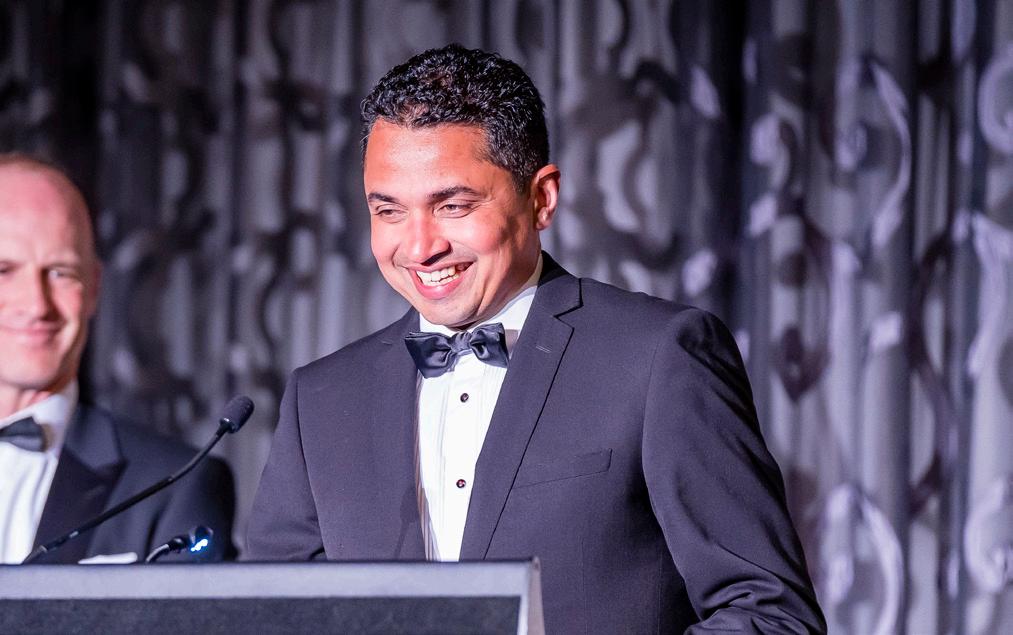
 Dr Krishant Naidu Indigenous Health Advisory Committee Chair
Dr Krishant Naidu Indigenous Health Advisory Committee Chair
The Women in Sport and Exercise Medicine Advisory Group (WSEMAG) were delighted to be able together in person, for our WSEMAG drinks, in Glenelg. After over 2 years of missing this key networking event, we had over 50 women gather prior to the welcome drinks. Sarah Beable spoke about the leadership program she undertook with the 2021 Women in Leadership Scholarship, and we were thrilled to announce Dr Eloise Matthews as the 2022 award recipient.
The WSEMAG continues to push for increased women in leadership roles in the College and greater sporting communities, with this scholarship providing valuable opportunities to further leadership skills. This event provided a valuable opportunity for women in ACSEP as well as those aspiring to get a place on the registrar program, to meet and share common interests, create connections and foster increased leadership and participation in sport and exercise more broadly. It was a perfect start to the conference social calendar.
The number of women in SEM leadership positions in the College and the broader sporting landscape continues to improve. Almost 50% of the 2023 registrar intake are female with gender parity being represented on the ACSEP Board.
We would like to thank Louise Tulloh and Deb Robinson for their time on the WSEMAG over the last few years, and welcome Nicole Sly to the Chair position. We would like to thank ACSEP for allowing us to be the first co-chairs of WSEMAG and looking forward to more progress in gender equity in SEM space.
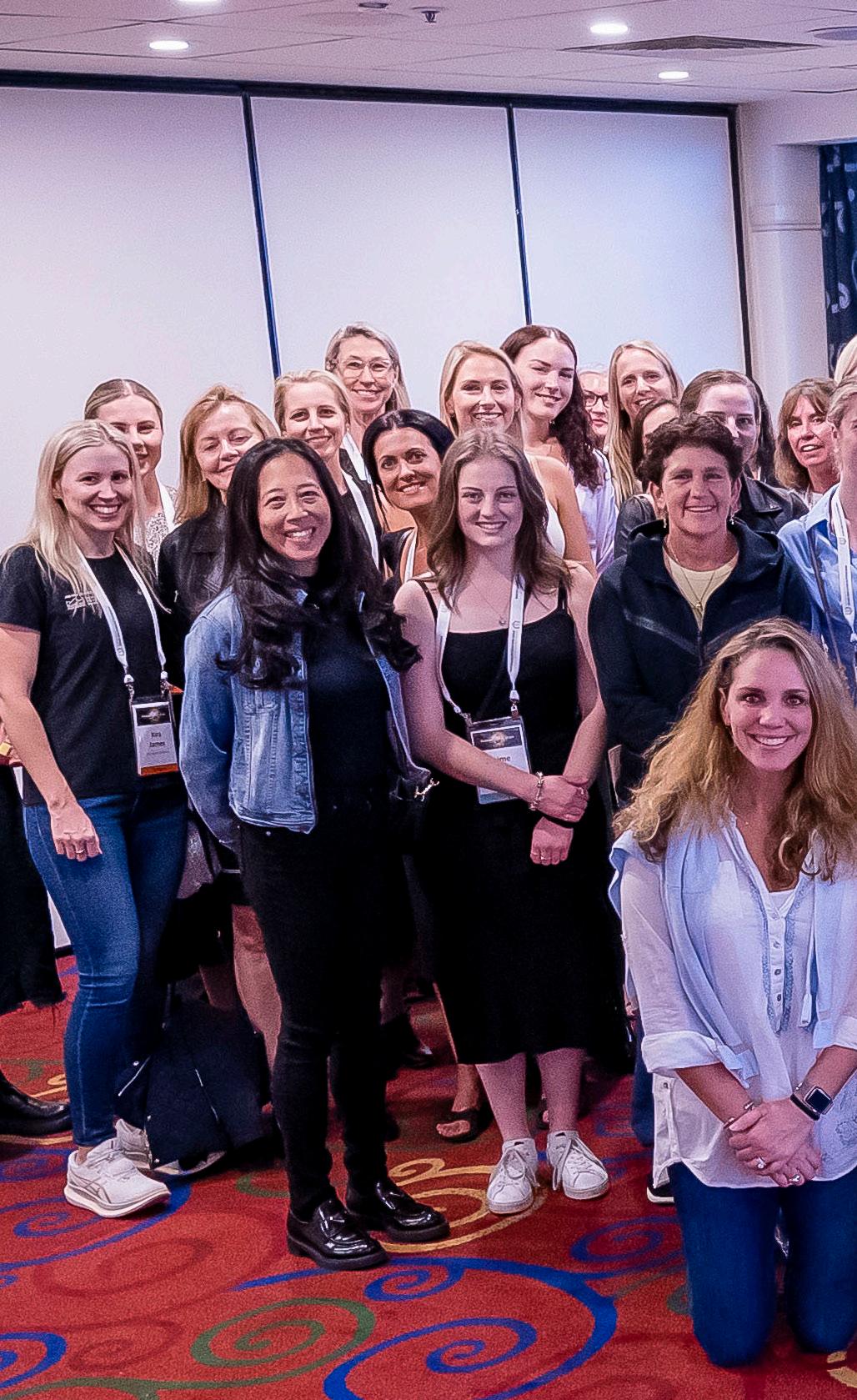
“Almost 50% of the 2023 registrar intake are female...”


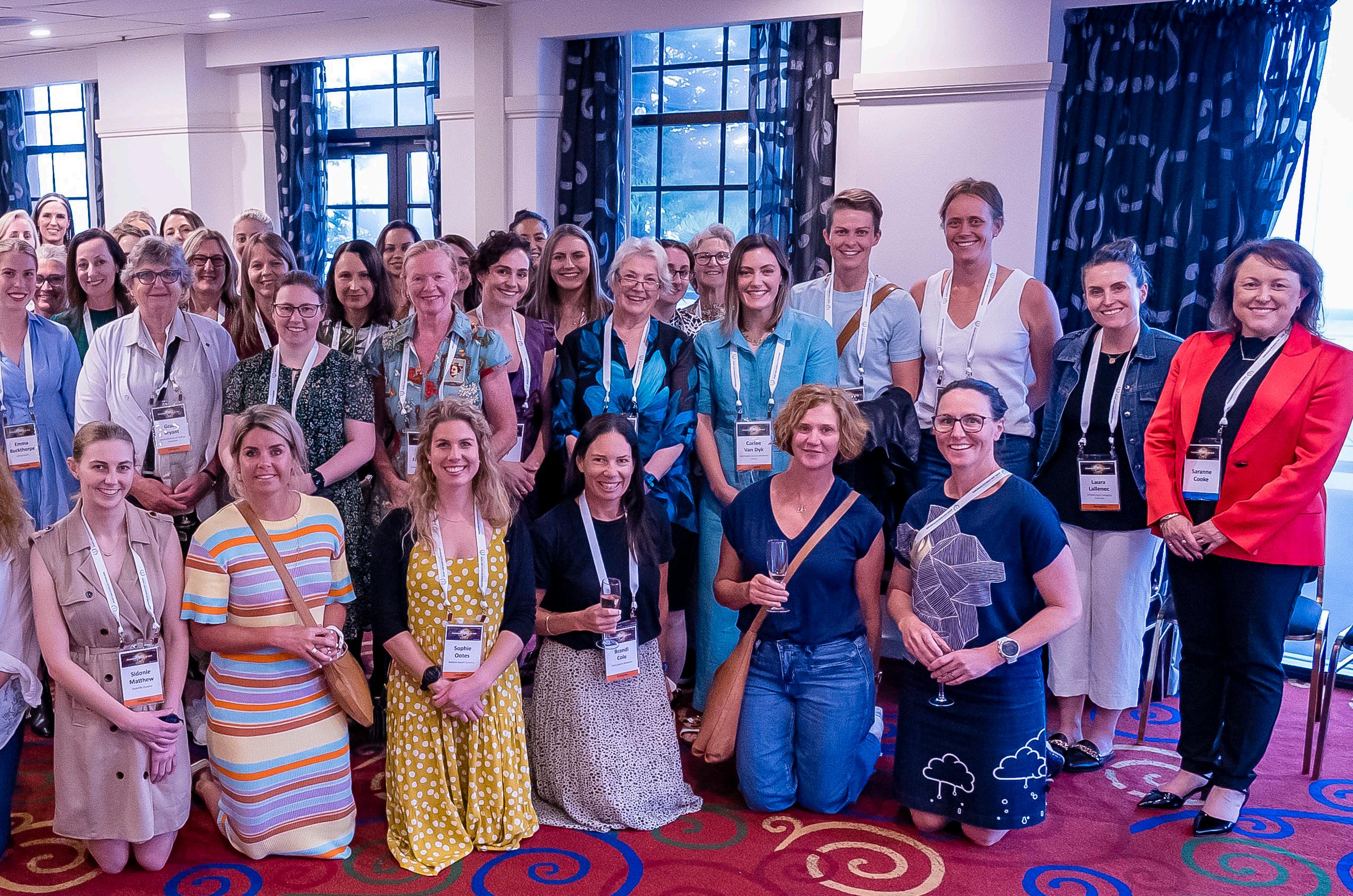
The Conference kicked-off in the seaside town of Glenelg, Adelaide with incredible weather and delegates eager to connect after two long years of virtual gatherings. With a total of 216 delegates attending in person, there was certainly a buzz in the air with opportunities to connect with exhibitors and sponsors, international speakers and colleagues. A live-stream option was made available with 58 delegates accessing this option.
The Conference took on the theme The Changing Climate of SEM and there were presentations addressing topical issues such as the impact of healthcare on the environment, transgender athletes and cannabis prescription, in addition to clinical content.
A highlight of the event was the Gala Dinner. As there had not been a Conference for two years, there were 25 New Fellows presented and five New Fellows that either deferred or were unable to attend. It was a big evening but a great one to conclude the Annual Scientific Conference. Congratulations to the newly elevated Fellows as well as the recipients of the College Awards.
We look forward to the 2023 Conference to be held in Wellington, New Zealand.
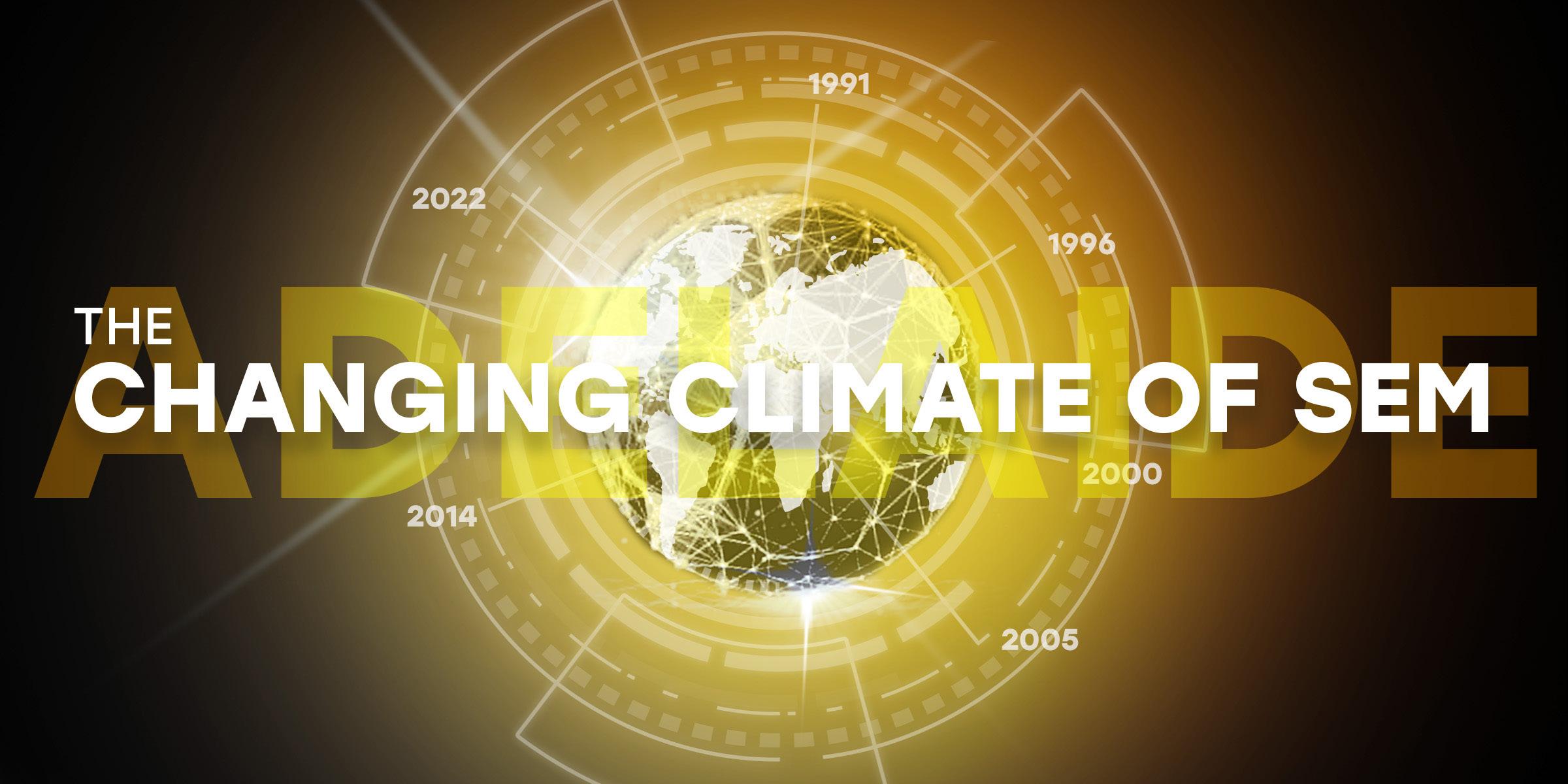
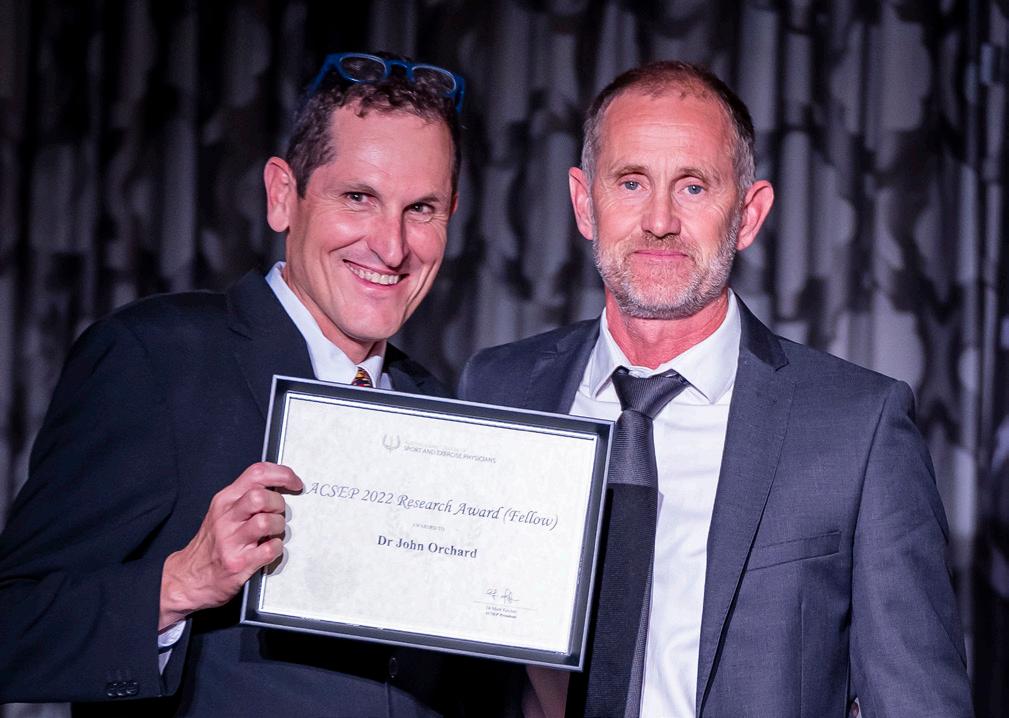
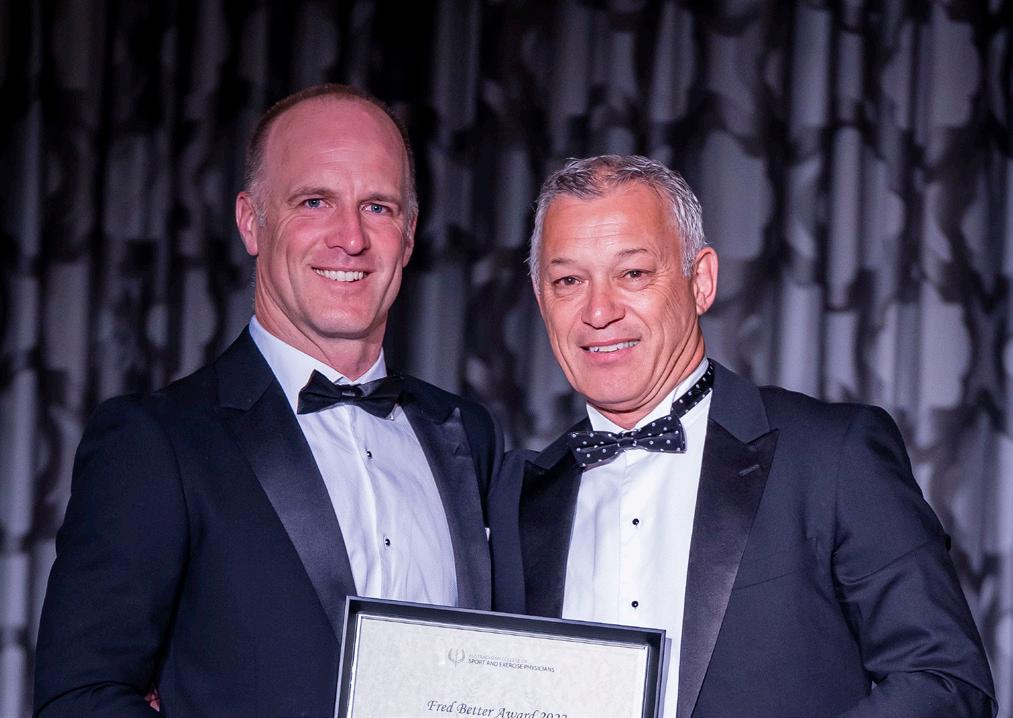
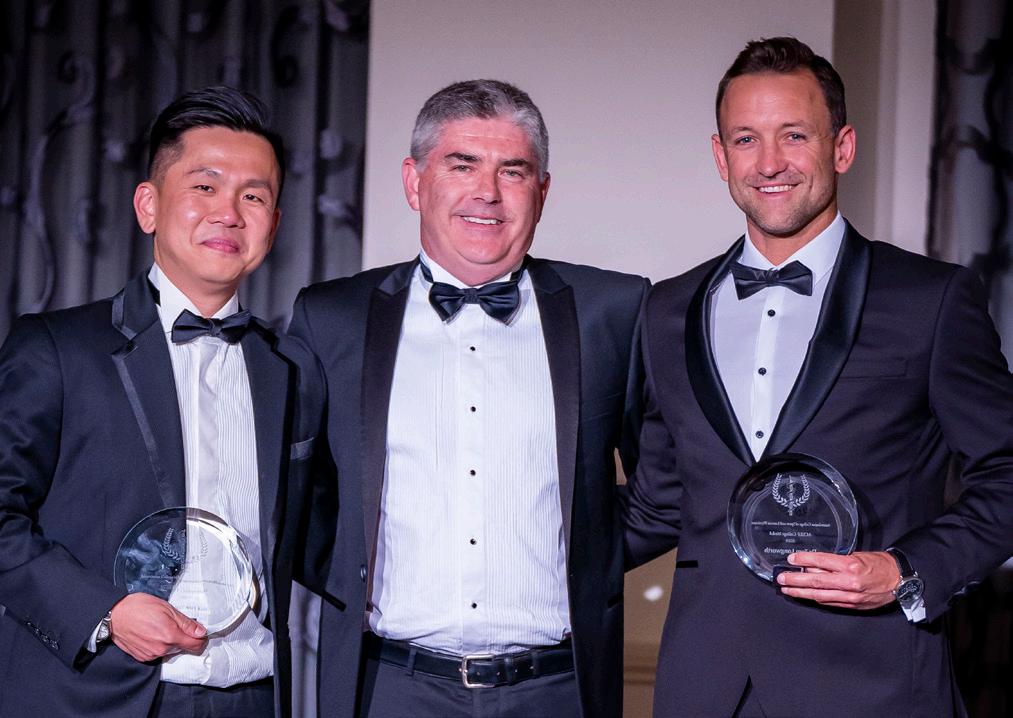
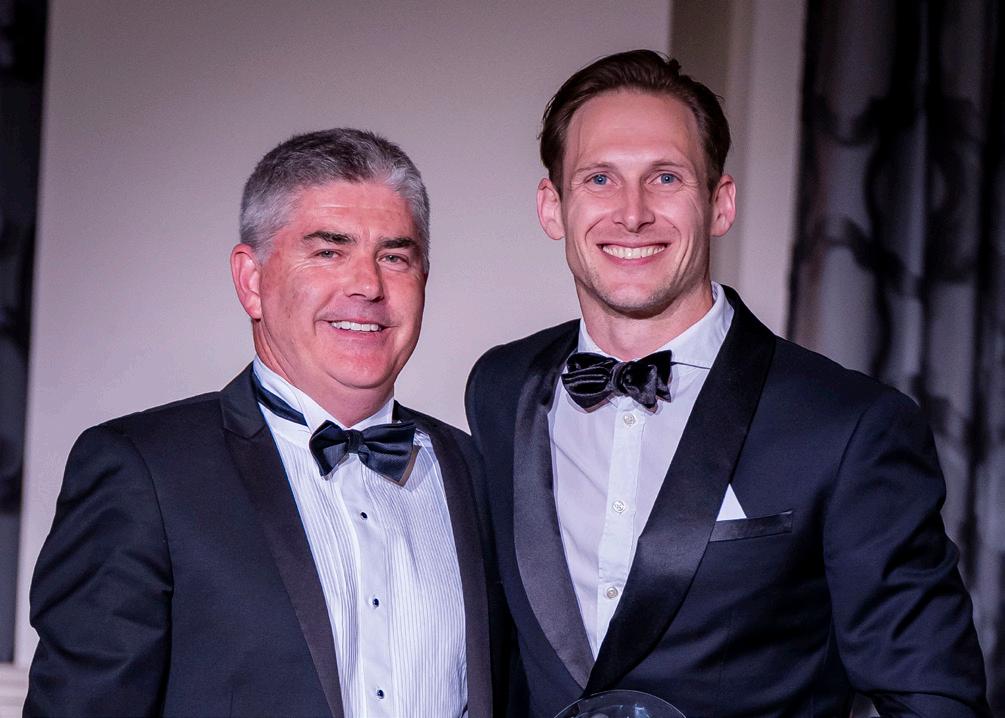
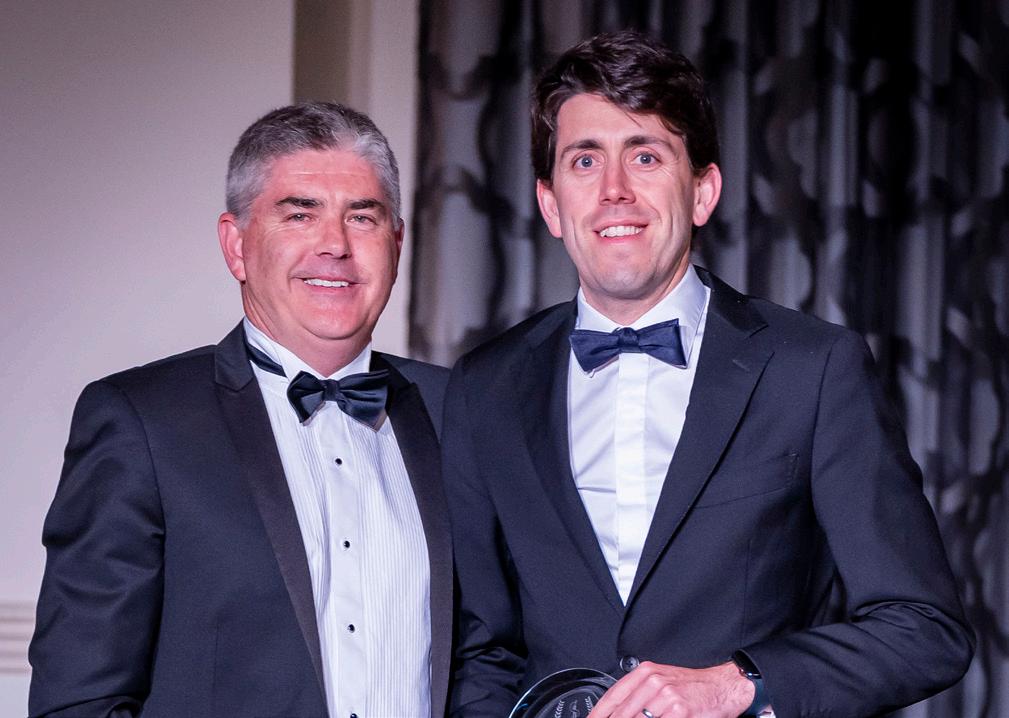
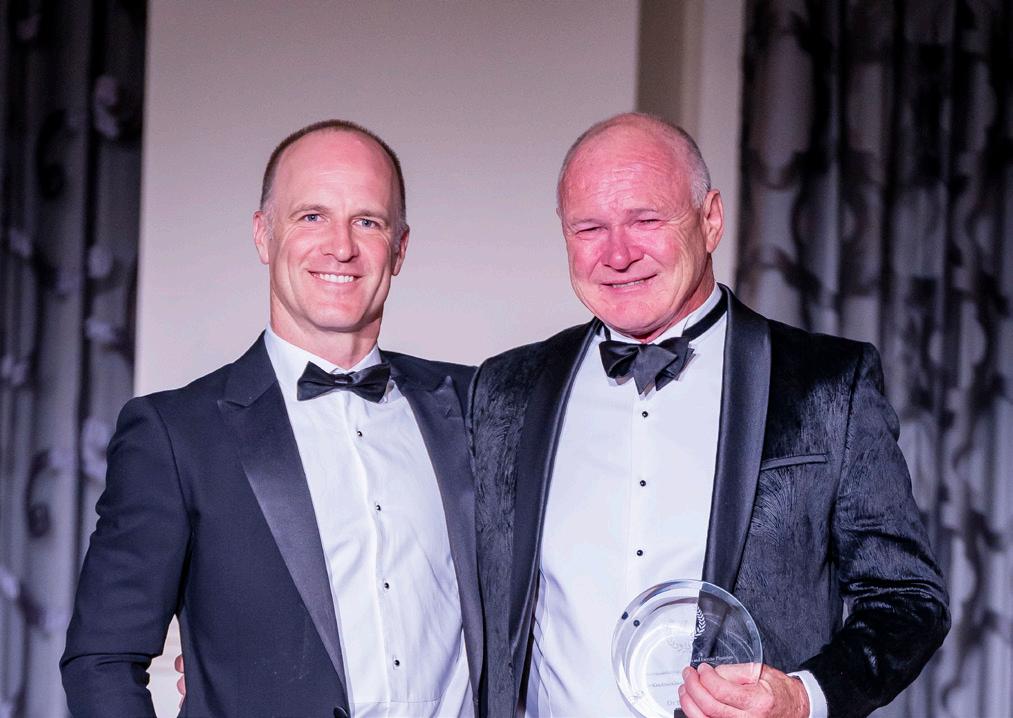 Dr Tony Edwards
Dr Jacob Jewson
Dr Sherwin Goh & Dr Tom Longworth
Dr Casey Whife
Dr Stephen Kara Dr Drew Slimmon
Jaime Brough
Ken Crichton Distinguished Service Award 2022
College Medal 2021
Fred Better Award 2022
College Medal 2022
College Medal 2020
Training Supervisor Award 2022
Indigenous Award
Dr John Orchard
Dr Tony Edwards
Dr Jacob Jewson
Dr Sherwin Goh & Dr Tom Longworth
Dr Casey Whife
Dr Stephen Kara Dr Drew Slimmon
Jaime Brough
Ken Crichton Distinguished Service Award 2022
College Medal 2021
Fred Better Award 2022
College Medal 2022
College Medal 2020
Training Supervisor Award 2022
Indigenous Award
Dr John Orchard
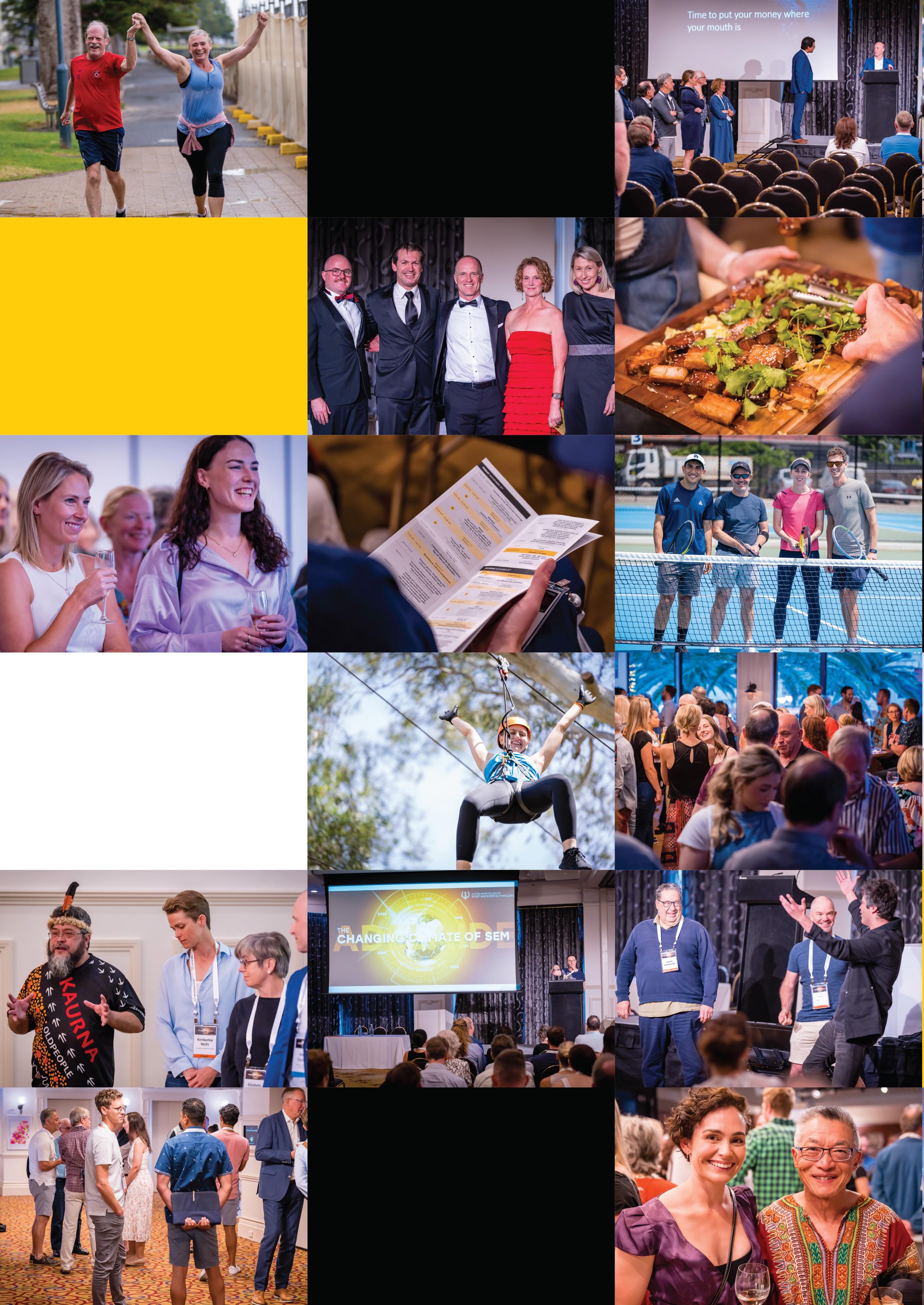
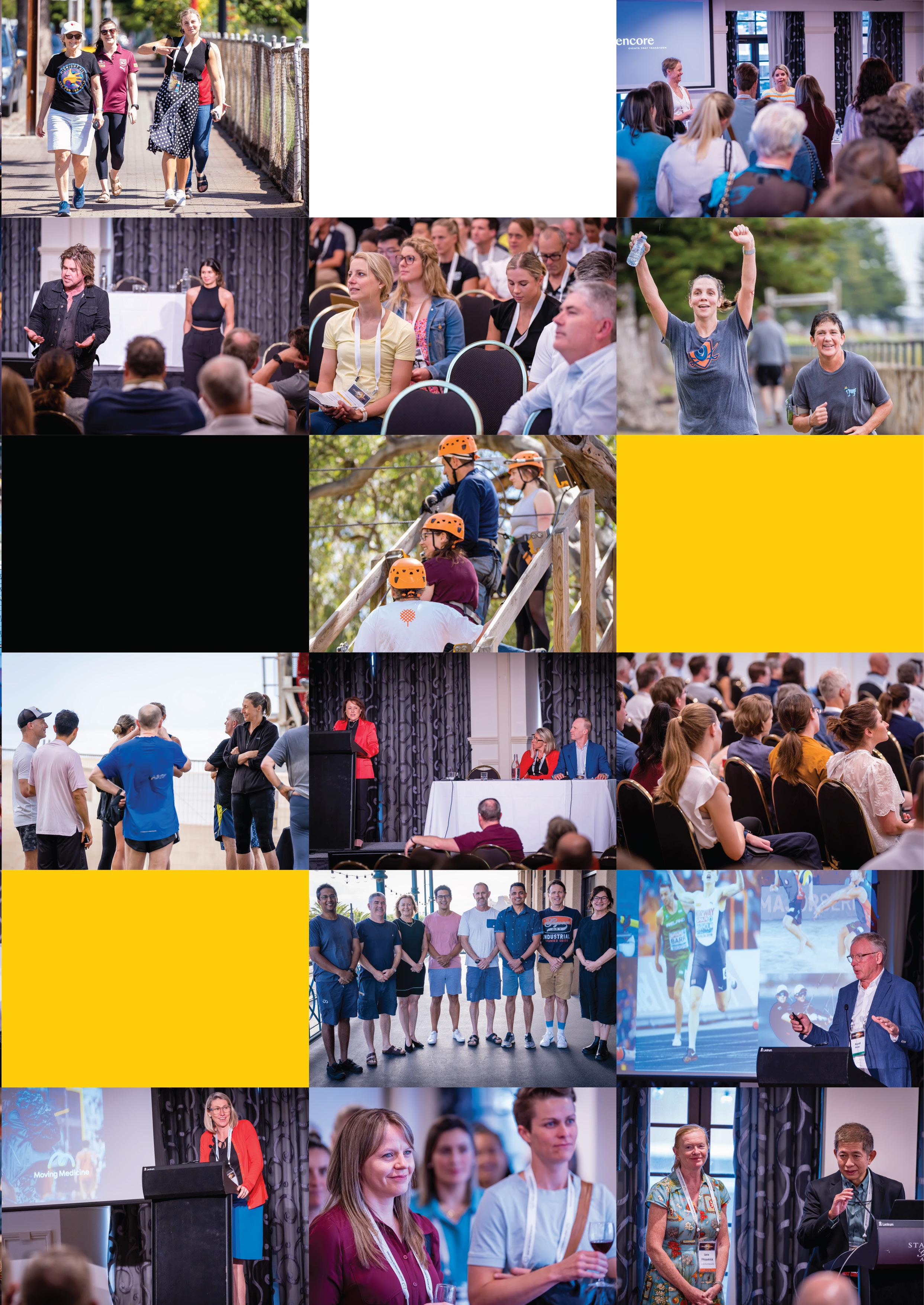
The growth and development of SEM Academy has continued in 2022. After several years of COVID related disruptions, borders reopened and travel became possible once again, creating opportunities to build greater connections with the global Sport and Exercise Medicine community and promote the SEM Academy to an international audience.
This year we promoted the SEM Academy abroad at the British Journal of Sports Medicine (BJSM) conference, the British Association of Sport and Exercise Medicine (BASEM) conference and the Isokinetic Conference, as well as locally at both the Australasian Society of Lifestyle Medicine conference and the SMA conference. Attending these events enhanced exposure for the SEM Academy and helped to further develop partnerships.
ACSEP now has SEM Academy partnerships in place with BASEM, the South African Sports Medicine Association (SASMA) and the Irish Faculty of Sports and Exercise Medicine. Discussions are also underway with the Canadian Academy of Sport and Exercise Medicine (CASEM), Le Réseau Santé & Sport in Switzerland and the American Medical Society for Sports Medicine (AMSSM). While we continue to experience growth in individual sign-ups, the majority of growth is occurring through organisational partnerships.
Sport-Related Concussion

“GREAT DEPTH OF INFORMATION GIVEN, PRESENTED IN AN ENGAGING AND INTERACTIVE MANNER. A VERY INFORMATIVE MODULE. A MUST FOR ANY ASPIRING SEM PHYSICIAN.”
This year the SEM Academy platform also had a design upgrade, with an enhanced look and features courtesy of our amazing design team at White Leaf Solutions. The SEM Academy was also awarded the BJSM Education Stamp of Approval confirming its status as a quality educational product.
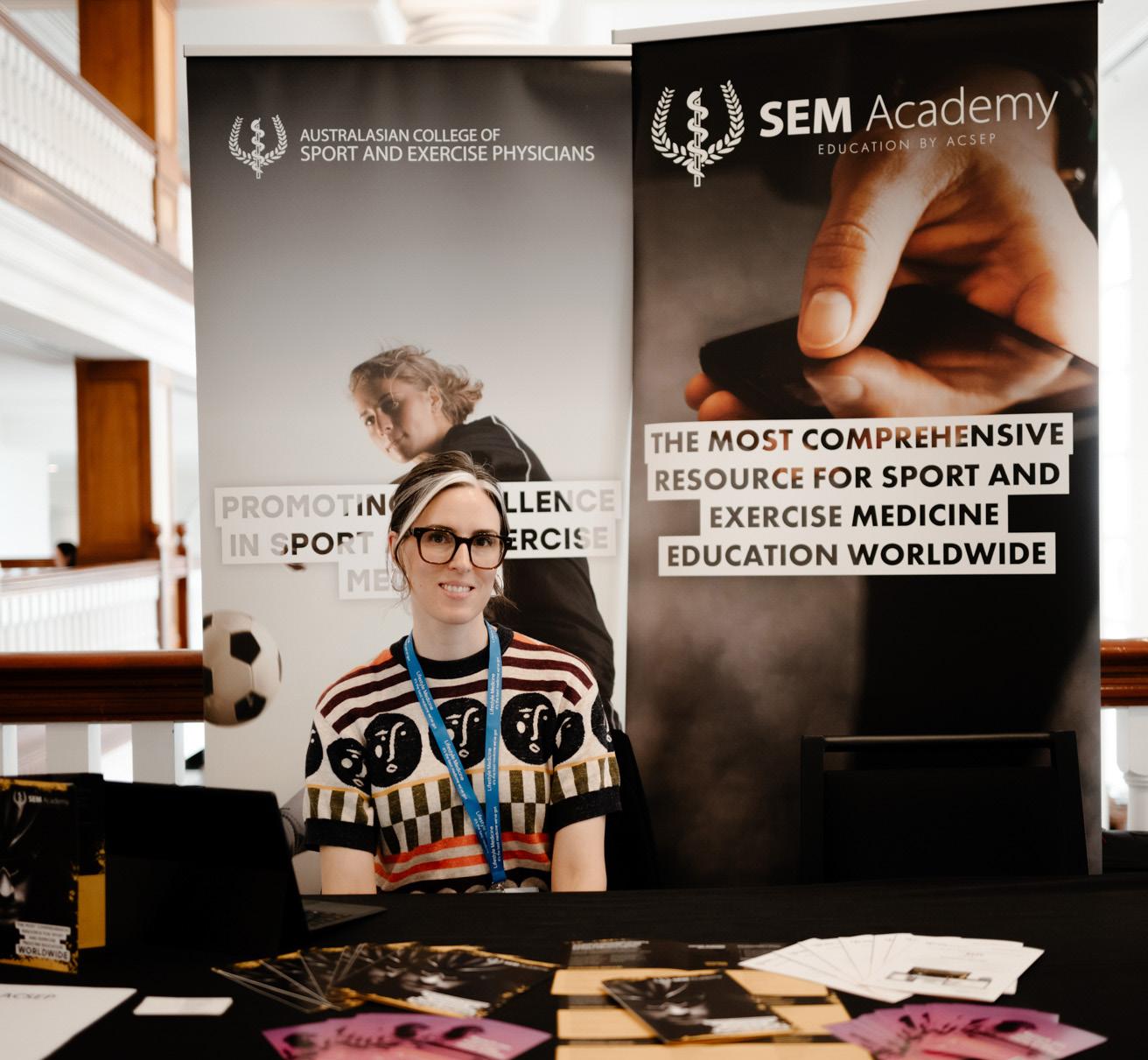
2023 is poised to be another year of growth for SEM Academy with new partnerships and developments on the horizon. We’ve received consistent feedback that a SEM Certificate or Diploma course would be of value to subscribers and the broader Sport and Exercise Medicine community and in 2023 we’re excited to begin development work on an SEM Diploma utilising our SEM Academy resources.
As part of our partnership arrangements, BASEM representatives have also joined the SEM Academy Advisory Group and discussions are underway for the development of two BASEM-funded modules. Click
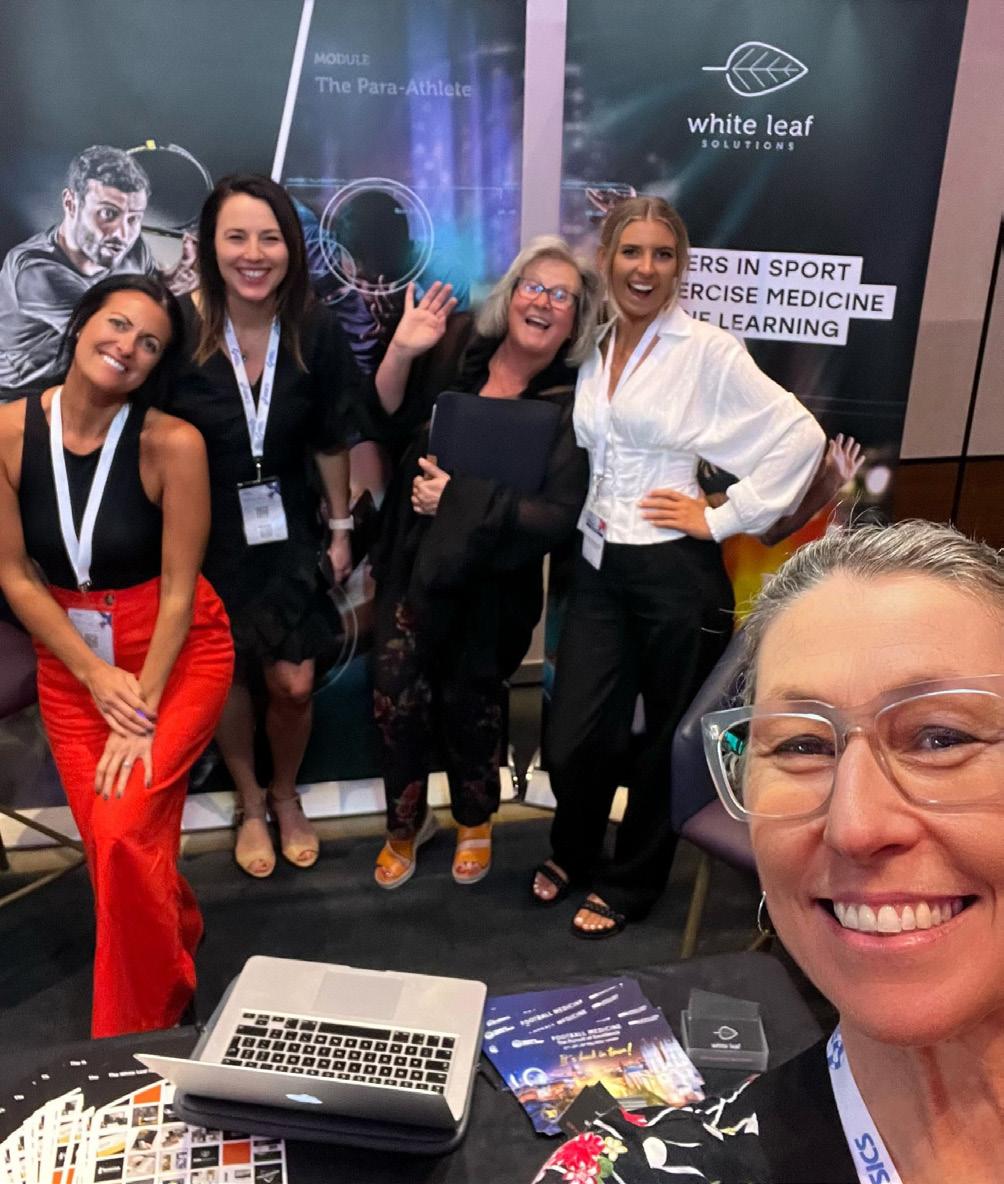

Australia UK

NZ
USA
Ireland
Canada

and the other covering a wide range of issues relating to Female Health. Also during 2023, a pre-reading module for the Ultrasound Course, a module looking at the Administrative, management and ethical side of Team Care will be created, along with a sport specific module on Canoeing and Kayaking. A welcome addition to the Fundamental Competency portfolio will be a SEM specific module on Climate Change and Sustainability, which will assist individuals and practices in reducing their carbon footprint and improving advocacy in the community for sustainable sport and exercise, exercising safely in a changing climate and promoting active transport.
2022 has been a busy year in the world of Education Modules. There were some delays in publishing the modules from 2021 so, early in the year, sports specific modules covering Cycling, Golfing and Olympic Powerlifting and Weightlifting along with Medical Care of a Large Event were launched.
This year we have been working on a number of modules, with Medical Care of the Athlete being our most recent release. Under development at present is a pre-reading module for the MOST course, which will give participants more opportunity for hands on practical work, Aquatics 1, focussed on swimming and the various strokes, technique issues and injury issues in the sport. You will love the Motivational Interviewing and Behavioural Change module, created by Dr Hamish Reid which will change the way you practice.
The Radiology Module – Investigations of the Upper limb is at the content development stage. Coming over the next nine months will be two more modules, one based on Winter Sports
A/Prof. Diana Robinson Chief Project Officer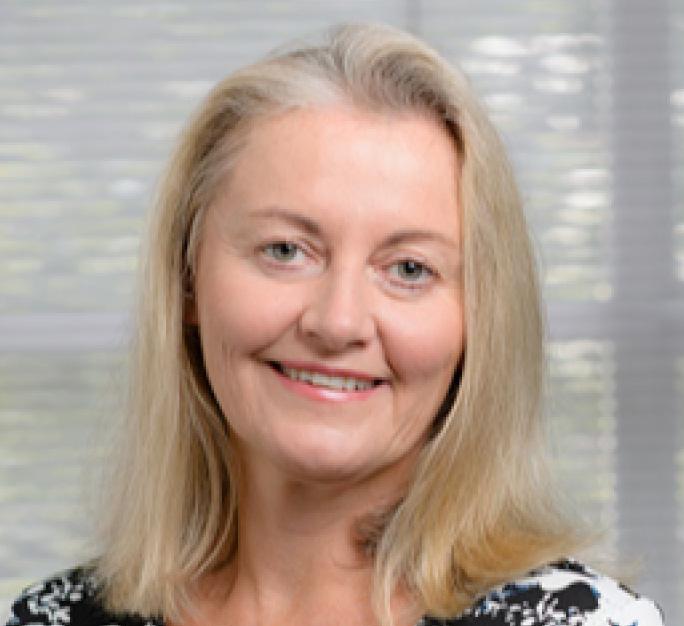
Latest Releases
All Things Cycling

Golf Medicine
Olympic Weightlifting and Powerlifting
Medical Care of Large Sporting Events
Medical Care of Athletes
Coming Soon
MOST Course
Aquatics 1 - Swimming
Motivational Interviewing and Behavioural Change
Radiology - Upper Limb
Radiographic Imaging

Winter Sports
Female Health
that stage, there was no pathway. So, I went into private practice and started my sport and exercise medicine career from there. The college was formed in 1986 and through membership, this gave me a pathway that was still a little blurred but it did have an endpoint to be shared with many wonderful colleagues. I am simply where I wanted to be with wonderful side trips.
If you weren’t a doctor, what would you have been?
What influenced you to become a Sport and Exercise Physician?
I crystallized my goals when I was a second-year resident medical officer at Princess Alexandra Hospital in Brisbane. We used to have annual resident reviews with the senior physicians in the hospital. I was asked what I wanted to do. I replied that I wanted to get into preventative medicine or health-related medicine. At
I have always wanted to be a doctor and at the time of making the decision, it just seemed the right thing to do. Possibly my extended family also influenced me as there were many medical leaders throughout my family who were responsible for developing new processes in their relative specialties.
What do you enjoy most about what you do?
I have enjoyed all aspects of my career. However probably the most satisfying and rewarding has been my time in Bendigo where I made a significant difference to the lives and well-being of my patients, my community. It has been
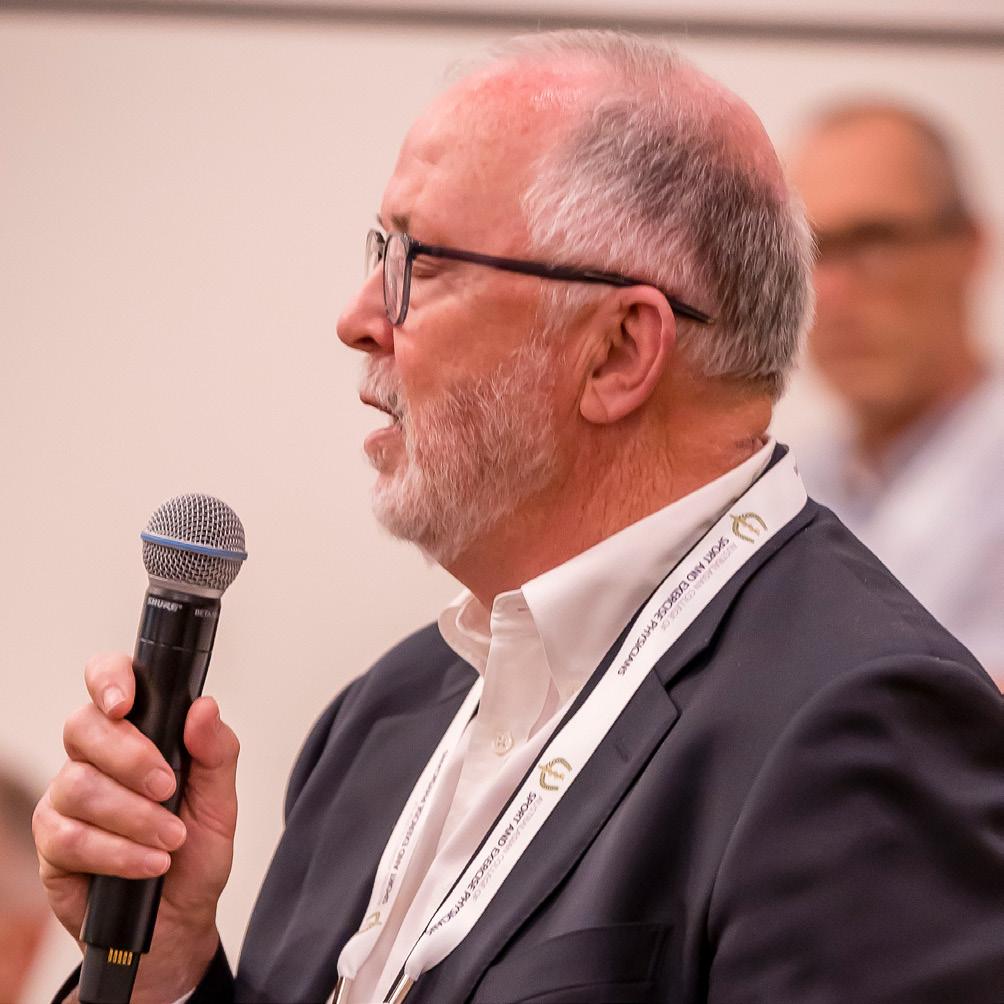
I have always wanted to be a doctor... it just seemed the right thing to do.”Simon Locke
a remarkably satisfying time especially seeing the transformation of people as they responded to multidisciplinary medicine of which I was a cog.
indicated that we need to repay this favour by working after graduation within our community especially in areas where there is need and community benefit. In other words, give back to the community.
Are
At one stage in my career, I shared rooms with a paediatric physiotherapist whose practice consisted of extremely disabled young children. Often, athletes would have to open the door for mothers struggling get children including the disabled patients through the front door. My consultations were very easy after that is the athlete would say all my problems really small compared with your waiting room. They learnt that despite the all-encompassing nature of elite sport; there was more to life that just sport and they were lucky.
The other part extremely useful was collaborative or multidisciplinary medicine where everybody has an important role to play. Interestingly, sport has been using multidisciplinary medicine for a number of decades and still retains it. It is simply effective when a team is involved. Mainstream medicine is slowly coming to this place.
I was in the first cohort that graduated in 1991. We did not have mentors in sport and exercise medicine but we did have many colleagues who were very free with their capable advice. But the best career advice I have had it came from the dean of my university; University of Tasmania. Prof Arthur Cobbold told us on many occasions as students that we were there by the grace of God and the benevolence of the Australian taxpayer who funded most of our education. He
If you could be the best at any sport, what would it be and why?
I would like to be good at competitive wave sailing. I always enjoyed bigger waves with decent wind. It was the combination of speed, jumping and turning onto large ramps at speed that was good fun. I still have a very clear image of my friends sailing beneath me on one day when I was up in the air (free surfing, no outcomes). We mainly wave sailed at beach breaks where the wind always died down in middle of the shore break. If you did not carry your speed through there, you were beaten up and thrown into the washing machine hanging onto your rig (free surfing consequences). These frequent times in the washing machine were expensive (broken masts, booms, torn sails). It also taught you very quickly where to hold and where not to hold your rig. During my very short competitive life in wave sailing, the rips always seem to take me 200 m down from the competition area (competition reality) and I had to walk back up the beach to the starting area carrying my board and rig into the wind. Generally by the time I returned to the competition area, the siren had sounded the end of my heat. This did not happen to good sailors. Consequently, I did not get a mention on the results sheet which is why I would like to at least finish a competition with some points.
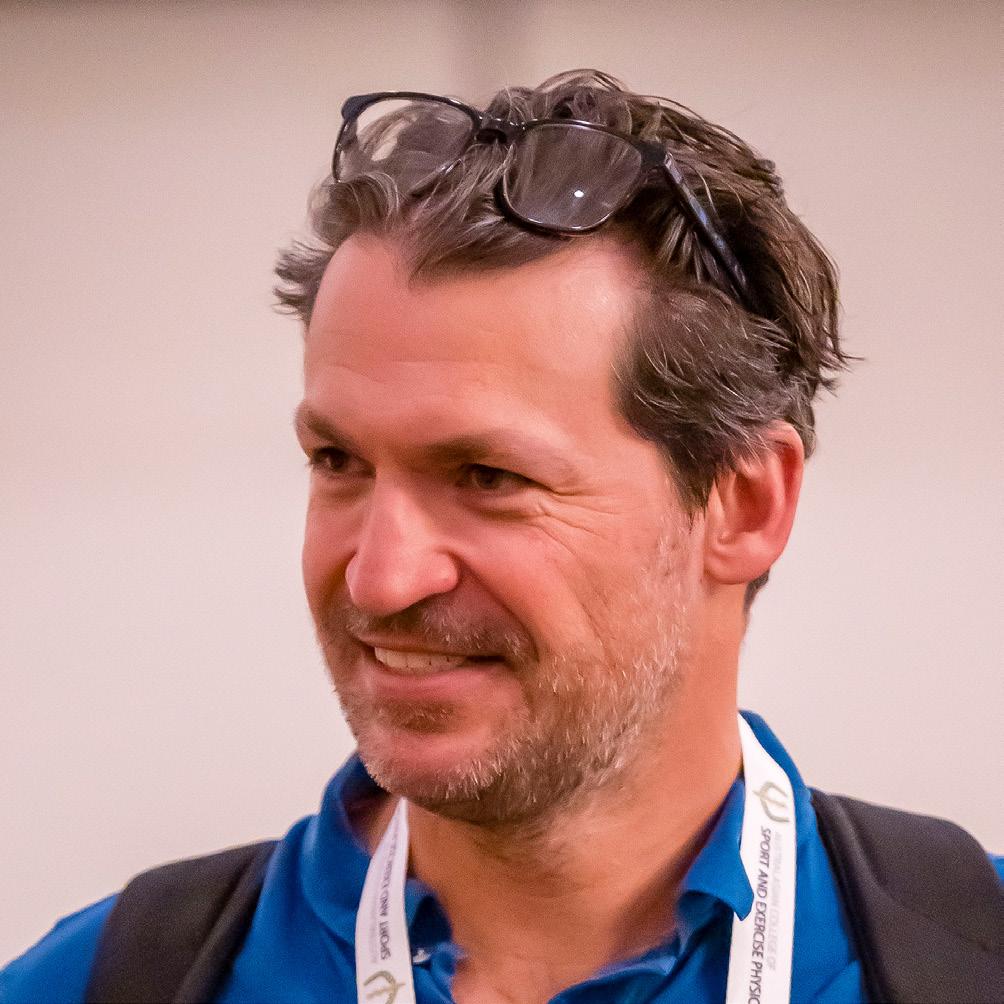
abattoir on the kill floor during the school holidays for pocket money. I soon realized I didn’t mind blood but preferred the human connection and keeping people alive! When I accepted I wasn’t quite going to get to the Olympics as an athlete, I could see that sport needed doctors to look after the athletes, and thought maybe that would be my ticket to get to one. Then I met Peter Brukner, and like many of us, here I am!
If you weren’t a doctor, what would you have been?
What influenced you to become a Sport and Exercise Physician?
I always wanted to be a track and field athlete and compete at the Olympics. I had this long obsession with the Olympics after watching the 1980 Moscow Olympics and reading old books about all the Olympic Sports. I loved trying to be my best at something and I also liked events that didn’t go too long – so loved the sprints and long jump. I also loved the pure international, multicultural flavour of the Olympics and being a son of migrant European parents, I loved travelling, discovering new exotic places and meeting wonderful, new people. A school trip to Nepal trekking through the Himalayas at 17 flipped me big time and was a huge inspiration to help those less fortunate that I to thrive. Luckily, I also loved the human body and was fascinated by physiology and the mind. My dad was a butcher and had me working in his
Definitely an international DJ. I love getting out and listening and dancing to music. I have an encyclopaedic memory of music and spent most of my pocket money on records, tapes, CD’s and sound systems growing up. I still have a box of 1000+ CD’s and 100 vinyl records, many from my parents who loved a disco groove. Luckily, I resisted buying mixing decks as a medical student as that may have proved too much of a distraction. My wife, Sophie, bought me a set of CDJ decks last year for Christmas and they take pride of place on my desk with all the music from my old iPod from 15 years ago all safely loaded up and ready to go on a Sunday afternoon with family and friends. Turns out, whilst I still have exceptional music taste (thanks Mum), I’m a much better doctor than I am mixer of tunes. Something my kids are now schooling me in! Fun times!
What do you enjoy most about what you do?
As Sport and Exercise Physicians, I truly believe we have the greatest, most satisfying and stimulating job on the planet. We get to work with our patients and teams to get the best out of themselves. We are all people facing, practice high performance
and preventative medicine with the aim of optimising physical and mental health. We work collaboratively across multiple health, management and governance disciplines often acting as the lead to deliver the best outcomes for our patients, athletes, teams and communities. We get to mentor, teach and work together bringing through the next wave of our tribe. A tribe not just limited to Australia and New Zealand but the entire world. This really hit me when I got to my first ACSEP Conference in 2002 and Olympics in London in 2012. All Sports Physicians there got it, got me and are a fantastic whanau to be part of.
Recently, I have enjoyed the transition away from professional and Olympic sport in a busy city to a fledgling, regional SEM specialist clinic with Sarah Beable in Queenstown, New Zealand where I am enjoying being more of a truly generalist Sport and Exercise Physician in a region lacking specialist medical care. I particularly enjoy working in a well-funded, much more equitable, culturally safe health system and wider medical community that really appreciates our expertise. I also have every Wednesday off to embrace the 4-day work week so I can spend more time exploring the South Island with Sophie and my young family. A legacy of the pandemic that I won’t be ditching.
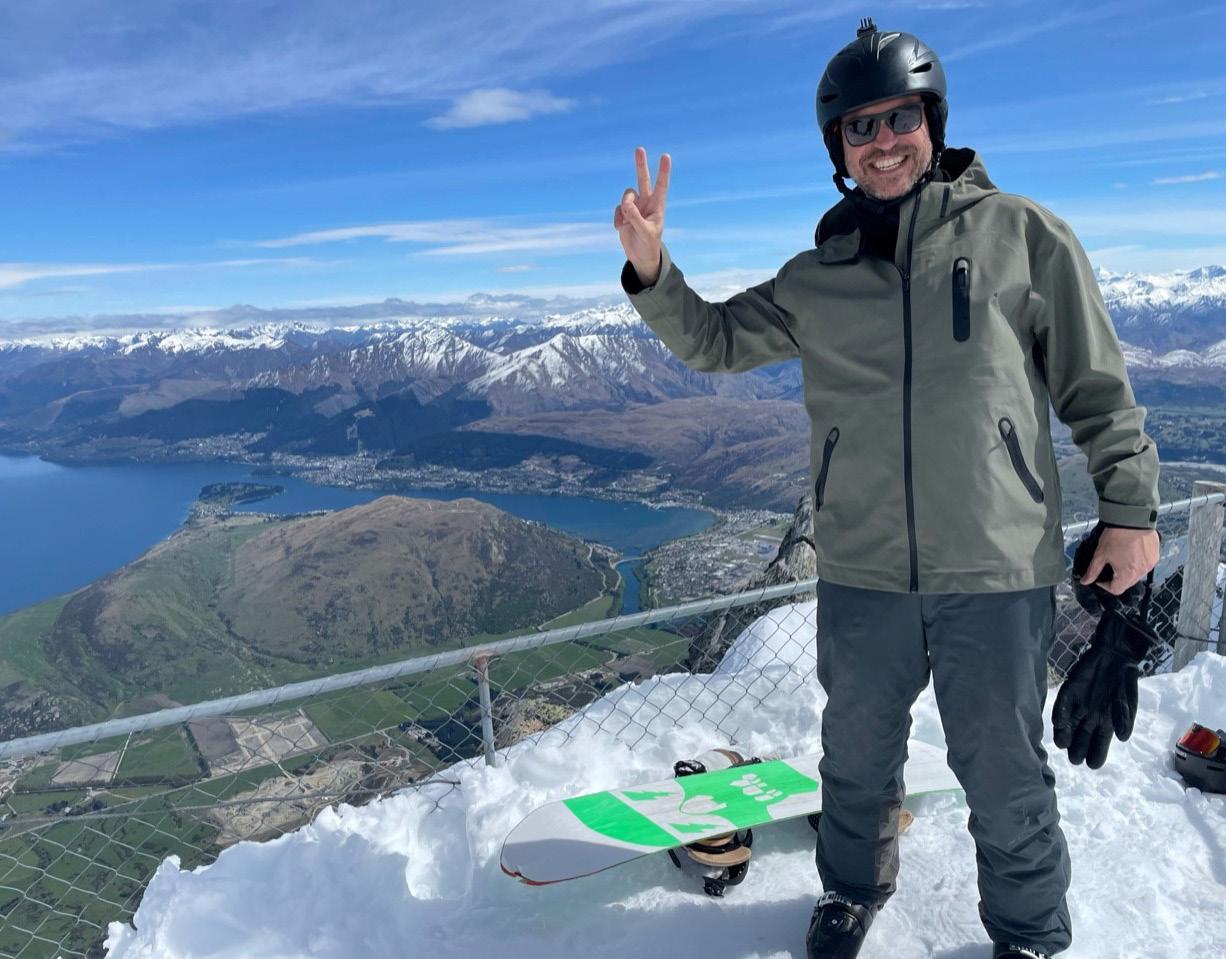
Obviously COVID has been a major I was never the most confident registrar as I was always surrounded by more assured, smarter people. I really struggled with the interstate year (I did 2 years in Sydney) for my registrar training. I have been incredibly lucky and privileged to be surrounded and supported by many in the College who have only always wanted the best for me. Those training years in Melbourne and Sydney were tough but
so worth the hard work. I can say to all wanting to come on and those coming through the training program that you will have tough days when you ask, “Is this all worth it?”. I can reassure you that it 100% is and even more than that. I am proud that as a College we uniquely celebrate and welcome each new Fellow into the College with mentors delivering personal congratulations for all to hear at the Fellows Dinner. ACSEP is a tremendous family and that bond lasts forever.
What is the best career advice you have been given?
Early on - Don’t give up. Luck comes to those who persevere, keep turning up and put themselves in the right place at the right time.
Now – Don’t be afraid to embrace new challenges. Don’t accept the status quo.
If you could be the best at any sport, what would it be and why?
Young Adam – Long jump – wanted to run fast and jump high and far like Bob Beamon.
Now – Freeskiing – absolutely love exploring untracked terrain and skiing with my kids and wife. There’s something super cool and difficult to put into words listening to your kids chatting excitedly about which run they want to take Soph and I on next. I have got to be good enough to keep up with my kids. Not letting the old man in!
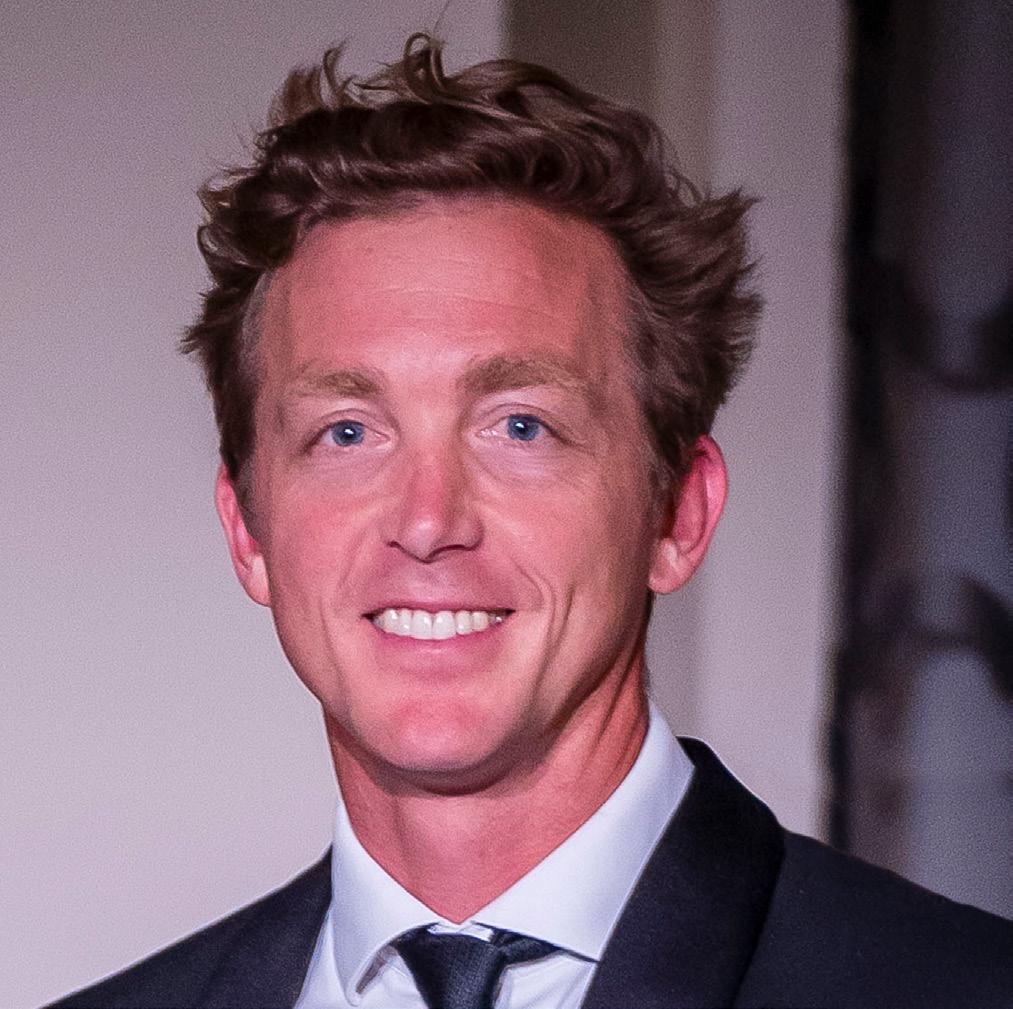
balance a wide range of roles such as sport, research, MSK practice, education and population health/policy work. I’m someone that needs some variety so over the course of my career expect to be able to shift focus across these different areas.
Are there any learnings or challenges that shaped your experience as a Sport and Exercise Physician?
I think this is a continuous process as the speciality evolves and me within it, so learnings and challenges are numerous and ongoing.
What is the best career advice you have been given?
Trust your intuition.
What influenced you to become a Sport and Exercise Physician?
Sport has always been an important part of my life. I realised there may be an opportunity to combine this with medicine when I intercalated in Sport Science and Medicine at university. I also wanted to work in a speciality where I could contribute to population health.
If you weren’t a doctor, what would you have been?
An explorer. However, I still can’t grow a beard so expect I would have been bullied at Explorer Club.
What do you enjoy most about what you do?
Most important is relationships with people. Something I particularly like about our speciality is the ability to
If you could be the best at any sport, what would it be and why?
I’d be the world’s best all-around waterman so I could spread my time between surf, foils and wind. I grew up in and around the sea and love being out on the water so if I was any good at water/ wind sports I expect I’d like it even more.
“
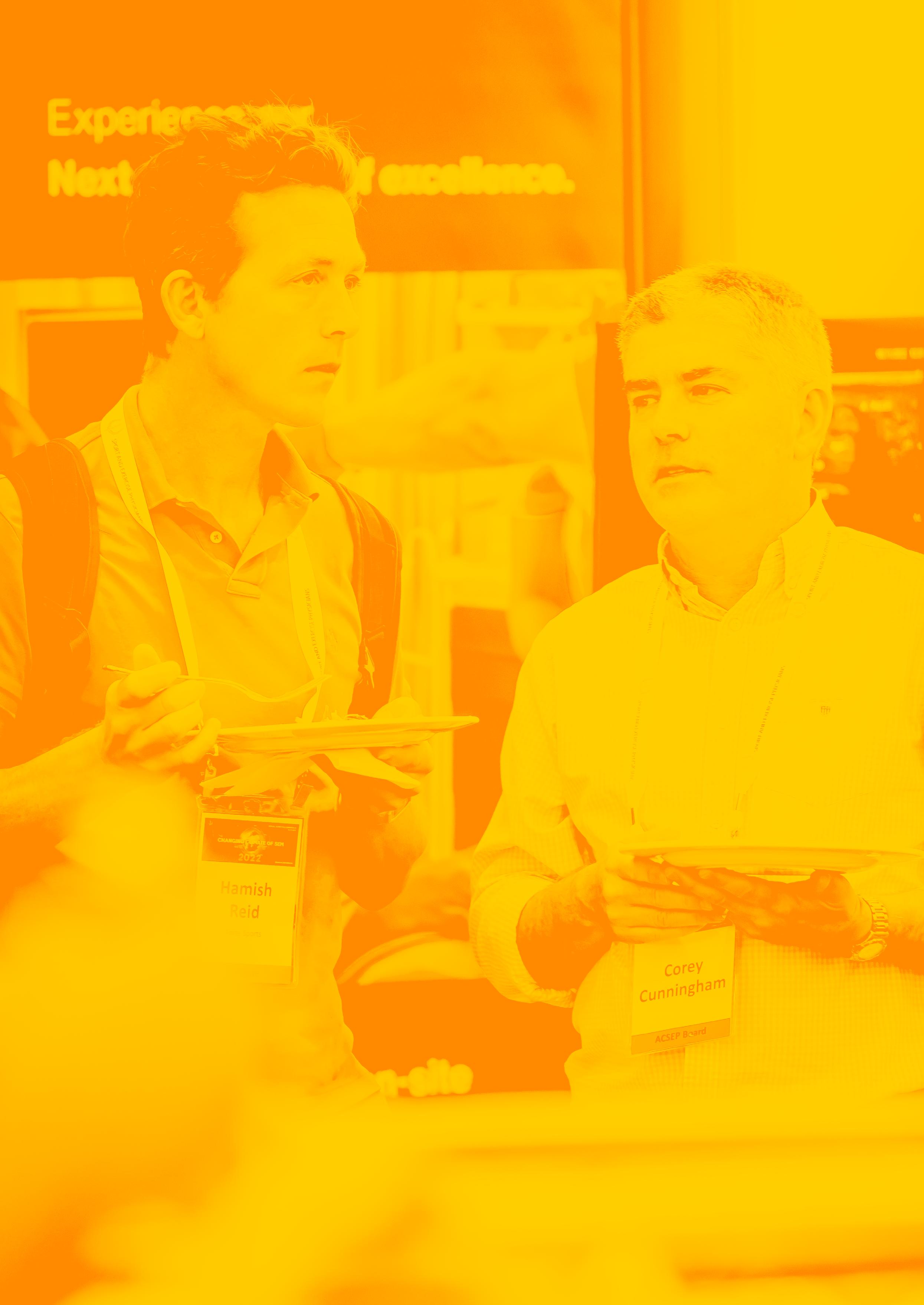
always important life.”

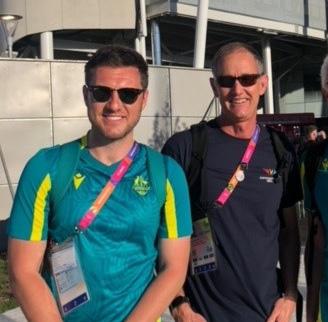
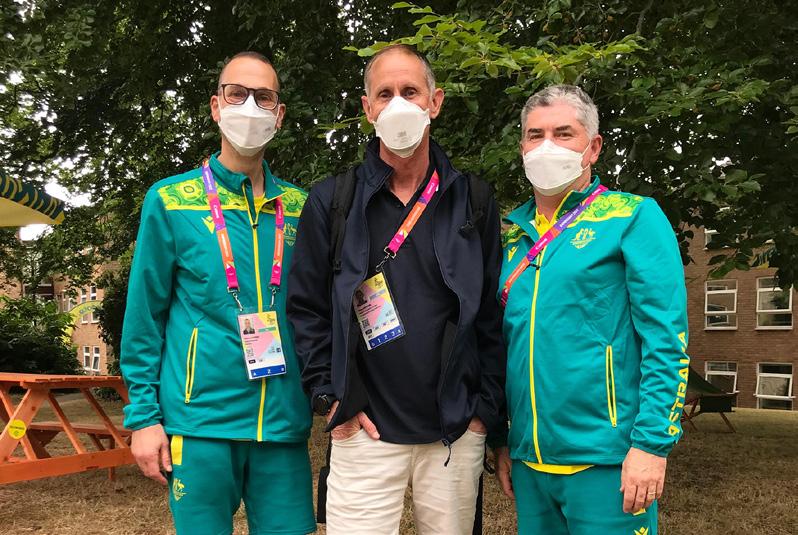
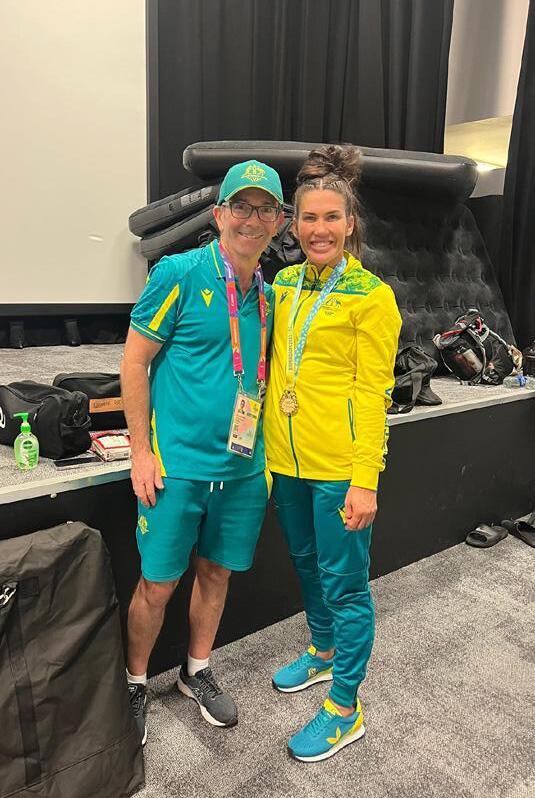
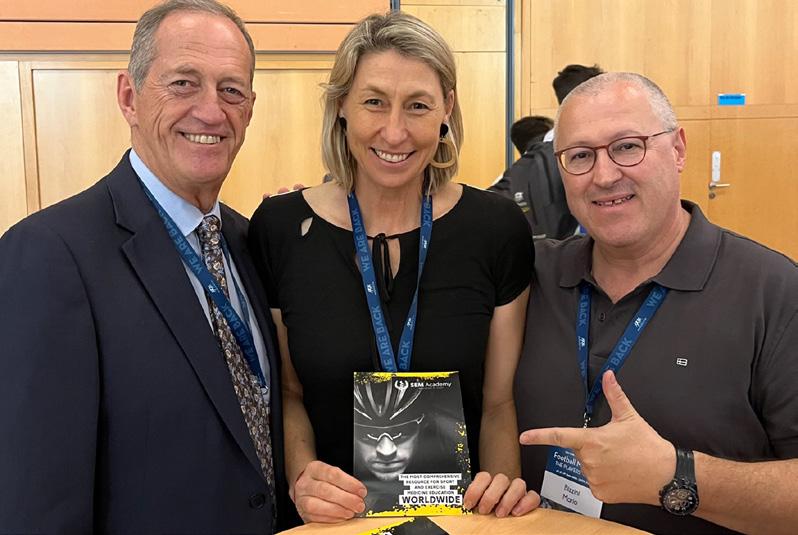
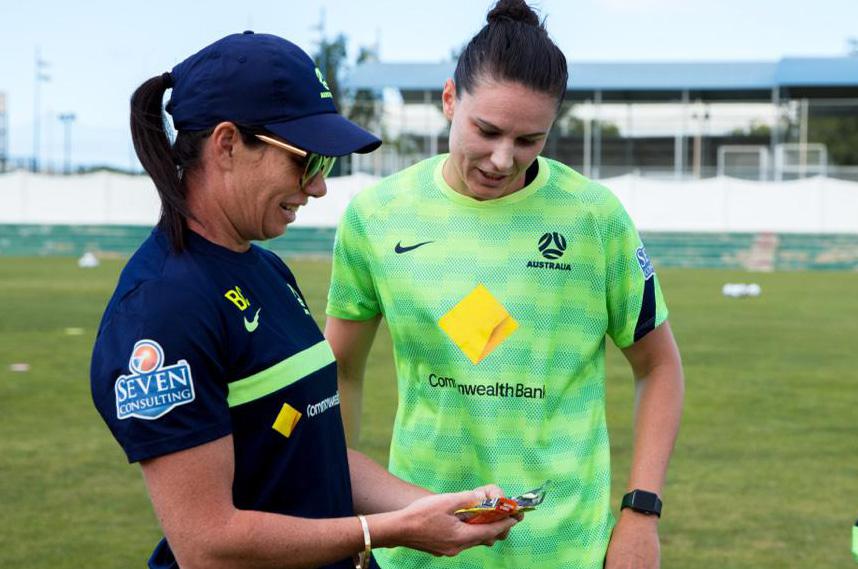
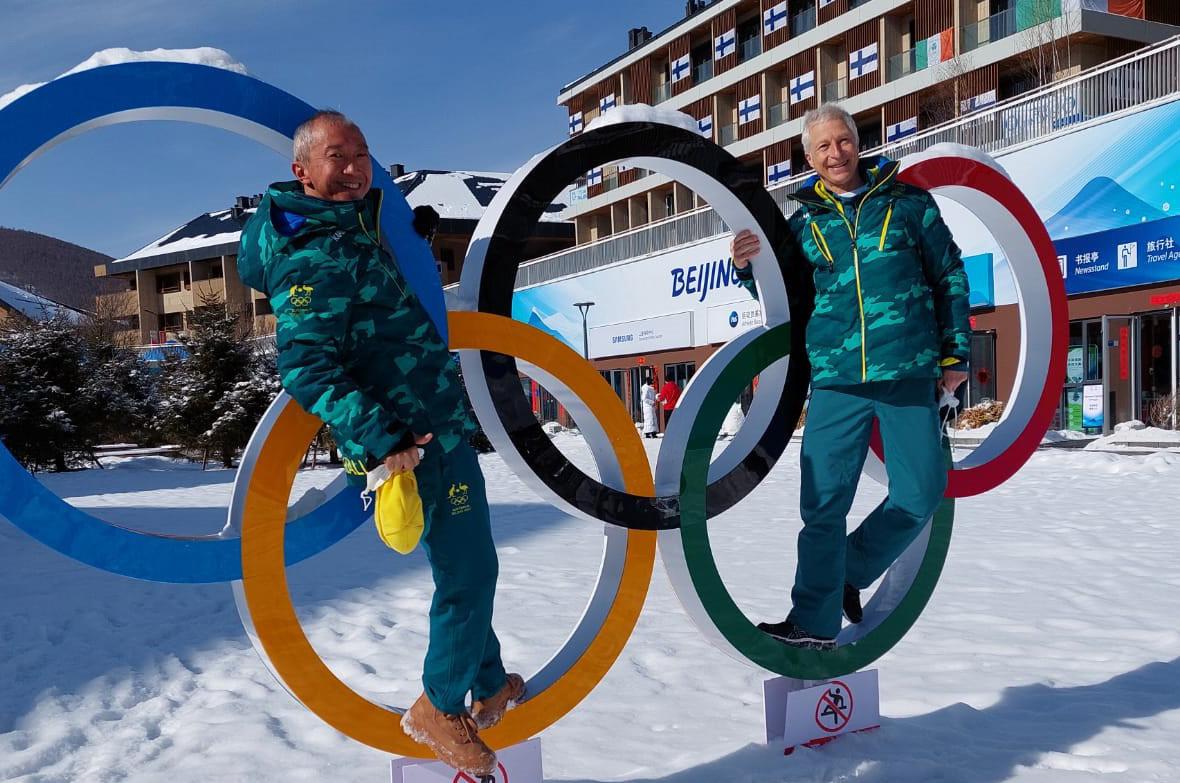
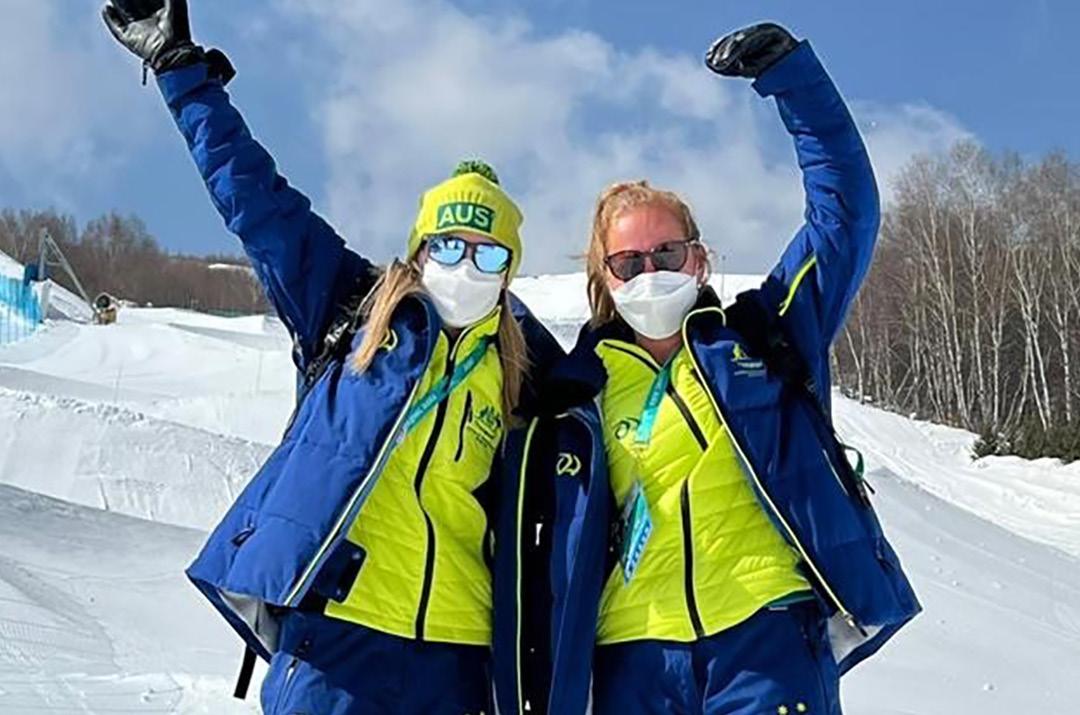
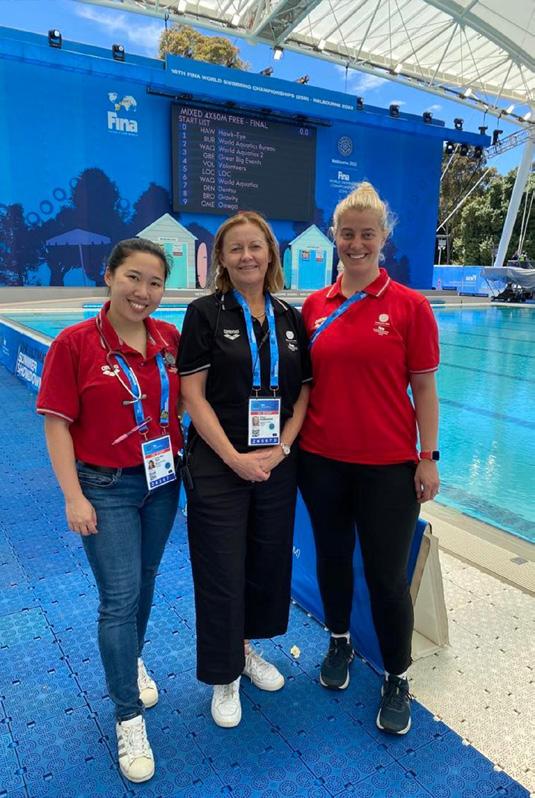
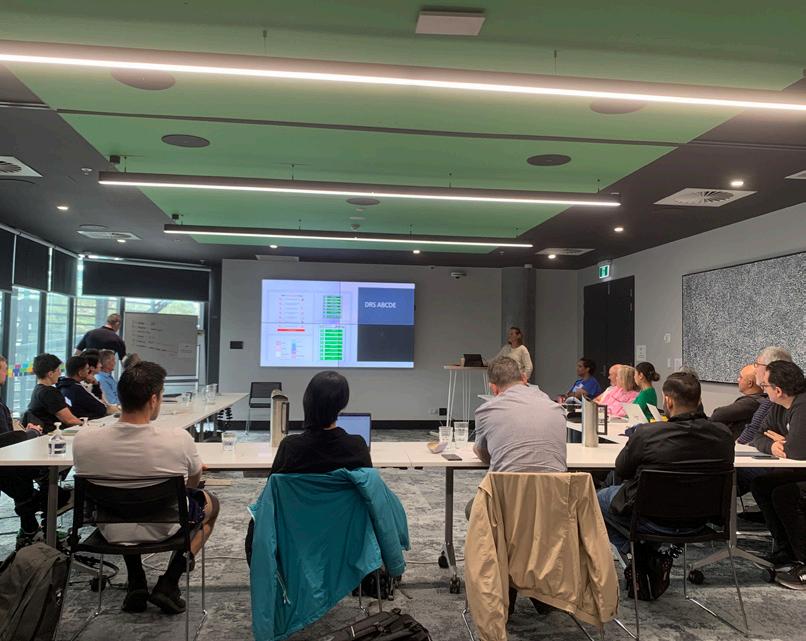
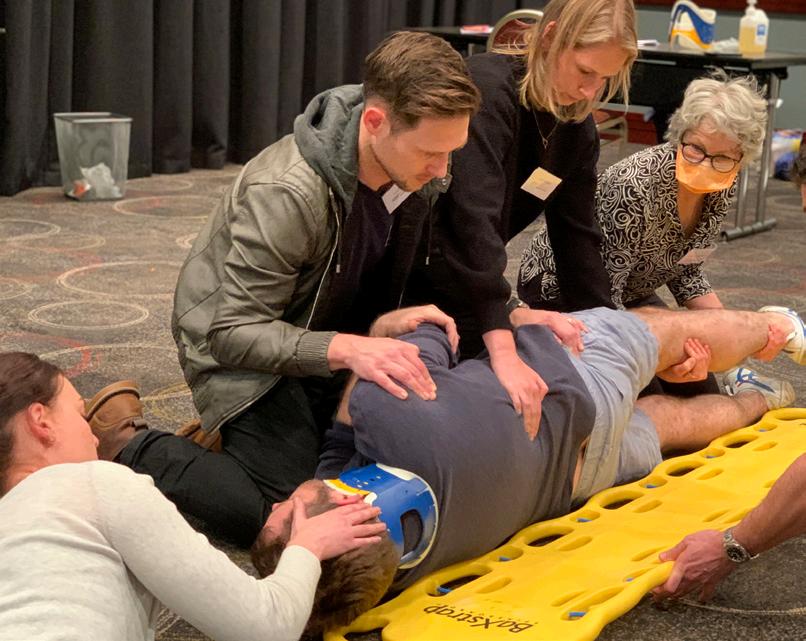

Sydney NRL - March
Perth - July
Sydney - August
Adelaide - November
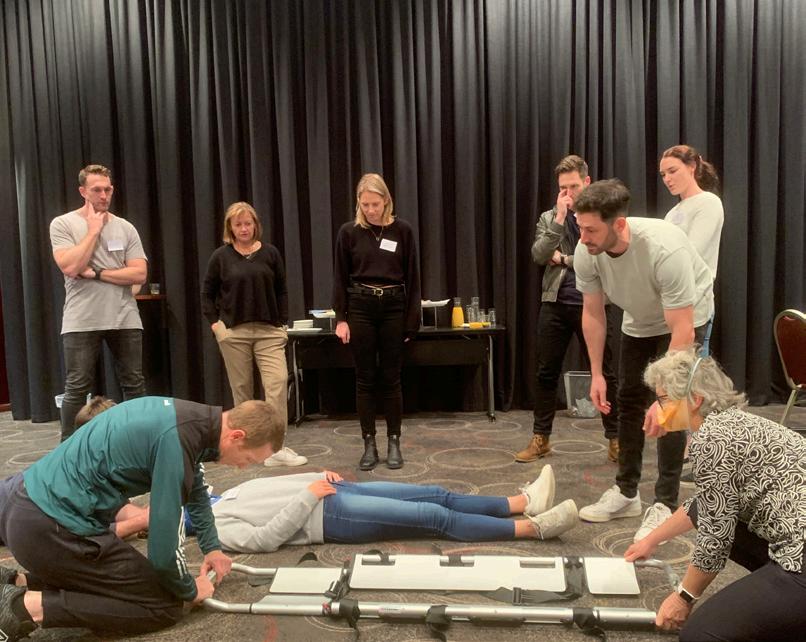
Melbourne - December

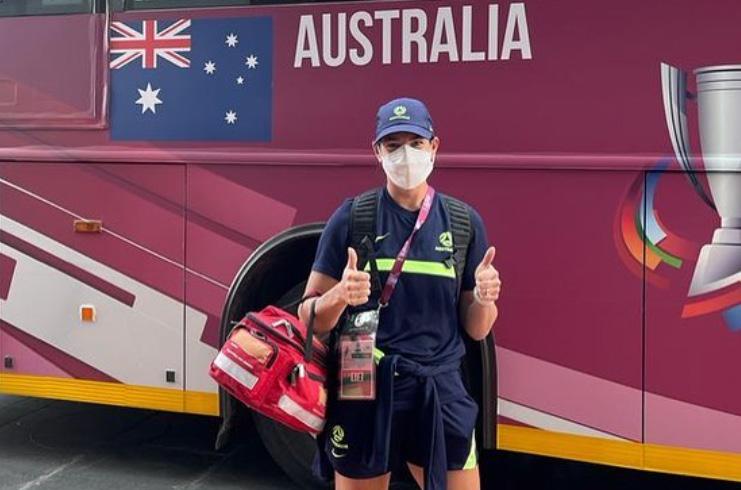
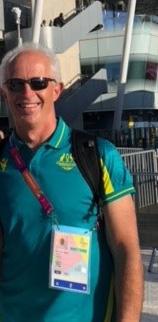
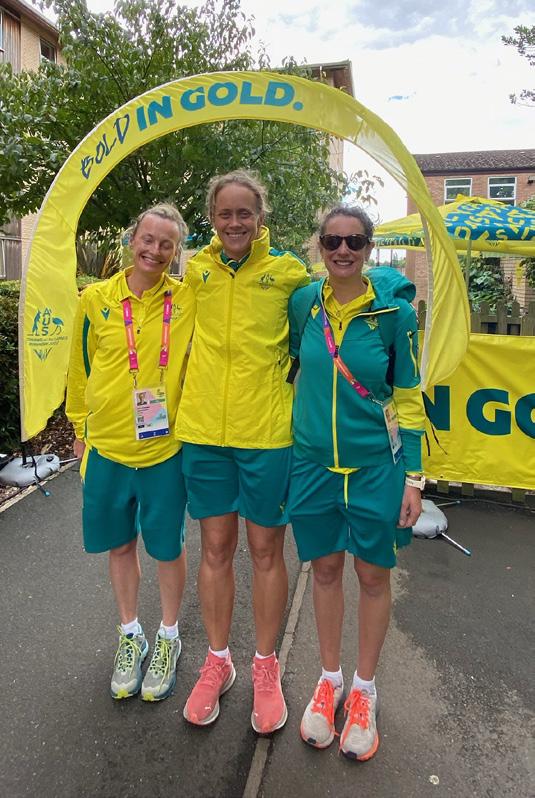
and other Medical Clinics
• Full clinic supervision by an Orthopaedic or ACSEP Consultant
• Guaranteed Qld Health salary, on the same hourly pay rate as any other hospital specialist trainee (including superannuation and leave allowances) (currently supplemented by STP/IRTP funding)
• Access to Qld Health Research Ethics Committee
One of the strategic goals of ACSEP is the expansion of our medical specialty, with further direction to a rural and regional focus. After 6 years of travel, and remote supervision, the challenge of expansion of Sport & Exercise Physicians into the Public Hospital sphere is becoming a reality. 2023 will see the first ACSEP trainee and specialist Sports Physician embark on a remarkable achievement of a new training site in Queensland Health, Cairns Hospital, Far North Queensland, with practice divided between both public hospital and private MSK/SEM clinics. Needless to say, the road to this realisation has been long and arduous.
The biggest complaint of a 1st year ACSEP trainee has been “not enough patients” or “poor income”, supplemented by surgical assisting. With this new pilot post, 1st year trainees will have access to:
• >100 patients daily (roughly 50 in Fracture Clinic, 50 in Orthopaedic clinics – even before including SEM Clinics) – not to mention the possibility of expanding this to Emergency Dept
• Part-time work in Private Practice with their ACSEP Supervisor (making up the level 1 supervision hours). The aim is still for the Registrar to hit the ground running in full-time private practice from 2nd year onwards, just like their peers.
In 2020, an article in The Medical Journal of Australia (MJA) demonstrated medical graduates who had some rural experience (either during childhood, medical school or residency/vocational training) was an important predictor of later rural medical practice.
The Specialist Training Program (STP) and Integrated Rural Training Pipeline (IRTP) Initiatives, from the Australian Department of Health, are game changers for ACSEP. These were developed to increase training posts for specialist medical colleges outside traditional hospital pathways, including the use of rural, remote and private facilities. ACSEP currently has 4x STP and 3x IRTP training positions. The limitation to these, especially the IRTP posts, is the requirement for 66% of Fellowship training to be completed regionally/rural and we are only limited by our current available SEM practices. Cairns Hospital is now accredited for both STP and/or IRTP training.
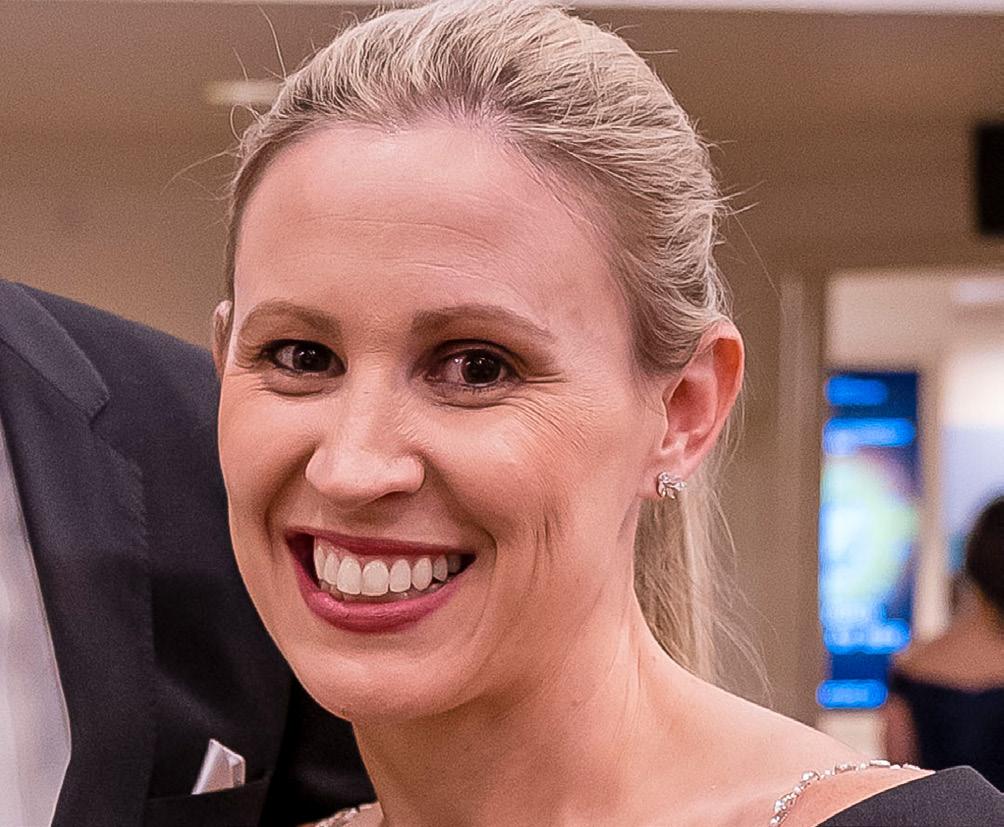 Kira James
Kira James
Improving the SEM services offered in FNQ & other rural/regional sites has been a passion project since moving back to Cairns as a 3rd year trainee in 2017 to be closer to family and furbabies. Coming from a rural background, yet still being able to work with some of our biggest national sporting teams, the question is why not? If athletes can represent Australia from all over the country, why can’t our Doctors?
In February 2023, ACSEP is about to embark on a new adventure for our trainees in the public and regional sector. Cairns Hospital currently has an Orthopaedic department of 13 Orthopaedic Surgeons (including the current AOA President, Dr Chris Morrey), 1 ACSEP Fellow, 3 AOA Trainee Registrars, 10 unaccredited registrars (PHOs), 15 residents/interns, a steady stream of James Cook University medical students, nurse and allied health practitioners.
Dr Chris Morrey and Dr Arvind Puri (current Director of Orthopaedics at Cairns Hospital, both who have been CTIs for my registrar training) have worked hard to also develop an AOA accredited FNQ Orthopaedics Training program commencing in 2023. Their passion for advocating and promoting regional health care, training and to establish a leading tertiary-level workforce, has enabled ACSEP practitioners to also be included within the Department as they can see the benefits of our two specialties working together in this space.
Another benefit is the access junior doctors now have to SEM directly within the public hospital where most doctors learn about their future career opportunities. The adage “you can’t be what you can’t see” rings true and being able to promote ACSEP to the junior workforce, something they have often never heard of before – and who are generally very interested, is always rewarding. Even if we can convince one junior doctor to think about ACSEP
or know Sport and Exercise Medicine exists when they become a GP, or Cardiologist, or Orthopaedic Surgeon, then it’s been a success.
This is not a new pathway I have paved alone. I will forever be grateful for those who have trodden the Rural/Regional/ Remote before me, including but not limited to, Drs Geoff Thompson, Viran De Silva, Greg Harris... Finally, I am eternally indebted to Isabelle Schroeder for her assistance in getting this post up and running. Without her, this wouldn’t be possible. So, Game On, let’s do this!
30th July, 2020 – plan was hatched to get SEM into Cairns Hospital with the Director of Orthopaedics
22nd Oct, 2021 – ACSEP registrar position at Cairns Hospital commences as part-time SEM Registrar (remote supervision)
13th May, 2022 – STP New Post application submitted for Cairns Hospital
12th AUG 2022 – DoH confirms Cairns Hospital as a successful STP position for ACSEP
21st Sept, 2022 – ACSEP Fellowship exams confirmed Pass
9th Oct, 2022 @ 3pm – ACSEP Placement Committee meeting for 2023 1st year positions
19th Oct, 2022 @ 3:05pm – QLD Health/Cairns Hospital approve additional top-up funding for STP SEM position within Cairns Hospital
Feb, 2023 – Dr Dougal Middleton to commence work in Cairns Hospital as a ACSEP 1st year Trainee within the Orthopaedic Dept
Our online presence continues to be an important point of connection with our members and partners internally as well as the global community. Key social media channels of Twitter, Instagram, Facebook and Linkedin support our events, activities, partnerships and initiatives.
Integration of communications systems has been a major discussion in 2022. A website review has been conducted and a decision was made for a new website to be built in 2023. We look to adopt a website platform that can be integrated with our social media channels and CRM systems to streamline outputs and minimize gaps in information sharing.
Beyond the website and socials, the Annual Scientific Conference is now in its third iteration of an online or hybrid model. This will continue to be explored as planning commences for the 2023 event with the intention of reaching a larger and broader audience beyond our membership.
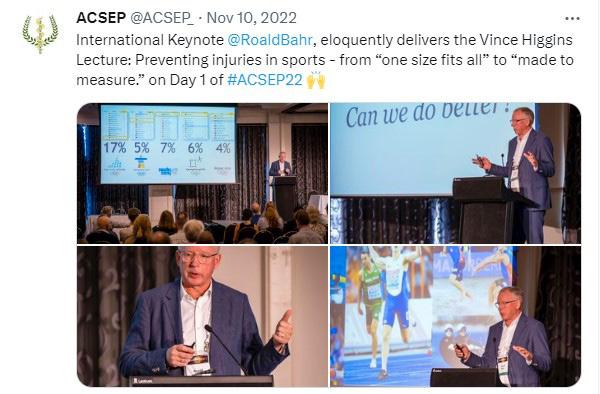
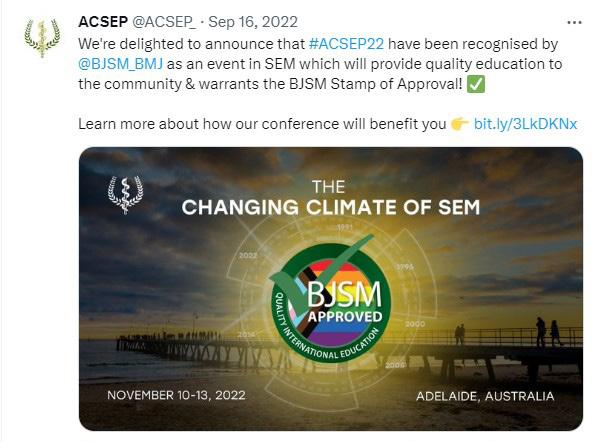
As the landscape of the online community changes and grows, our College is committed to growing with it.
Twitter Followers:
2,856
Facebook Followers:
1,722
Linkedin Followers:
940
Instagram Followers: 471
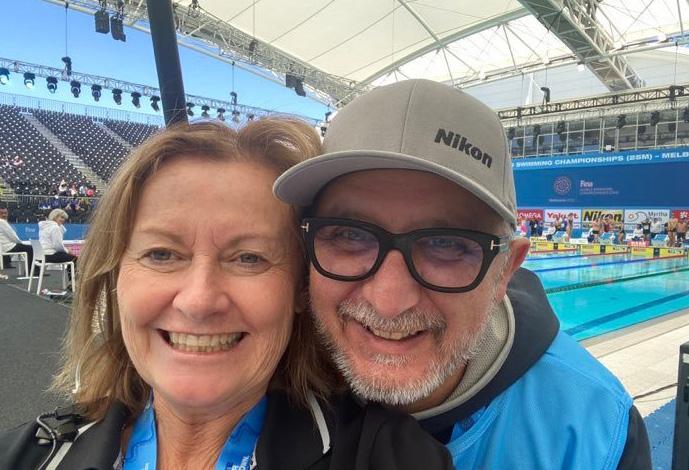
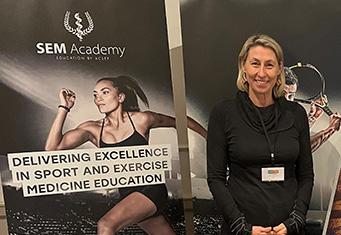
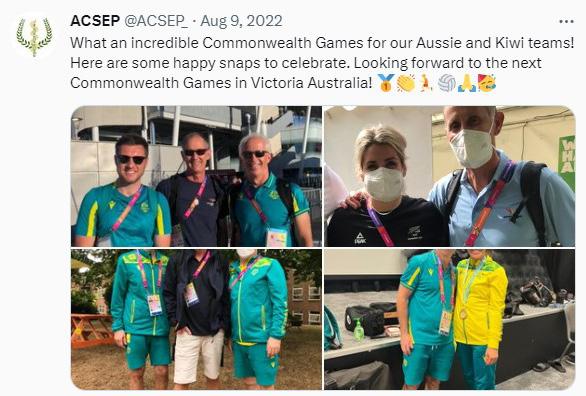
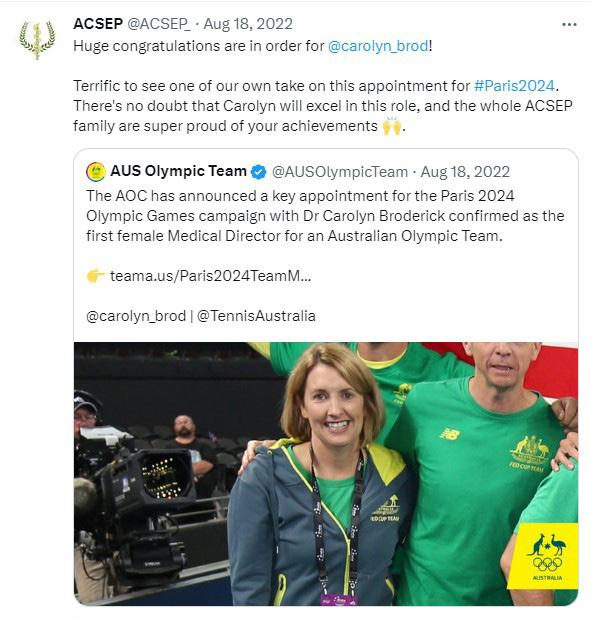
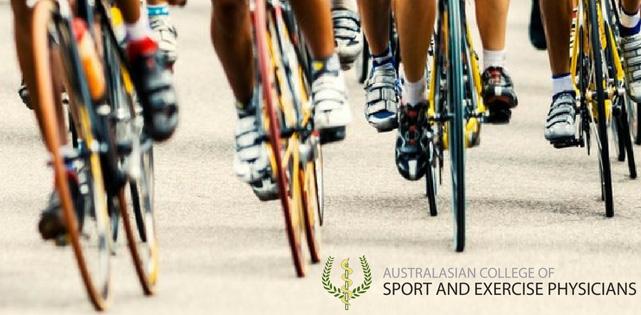

Moving Medicine progress has unfortunately paused with its progress throughout 2022 due to resourcing issues. There have however been opportunities to develop partnerships and investigate alternate funding opportunities which the College has pursued.

Moving Medicine Australia gained endorsements from leading healthcare organisations in Australia including the Australian Physiotherapy Association (APA), the Australian Society of Lifestyle Medicine and more recently Chiropractic Australia.
The ACSEP recently secured government funding for the development of exercise prescription and behavioural intervention resources for use with Aboriginal and Torres Strait Islander patients. Exercise prescription is an evidence-based, lost cost treatment for many conditions, particularly chronic diseases. As Aboriginal and Torres Strait Islander peoples experience greater burden from
chronic disease, exercise prescription may be a particularly useful treatment option for these populations.
This project aims to improve the resources available to medical practitioners working with Aboriginal and Torres Strait Islander patients. It involves reviewing and redeveloping the College’s existing exercise prescription resources available on Moving Medicine Australia to ensure that they are culturally appropriate for use with Aboriginal and Torres Strait Islander patients. The project will also involve developing, piloting, and evaluating a culturally safe “Active Conversations” behavioural intervention program for use with Aboriginal and Torres Strait Islander patients.
The ACSEP has engaged with a project consultant who will engage with AIDA and Aboriginal and Torres Strait Islander community members in 2023 in the hope to deliver the project by September 2023.
